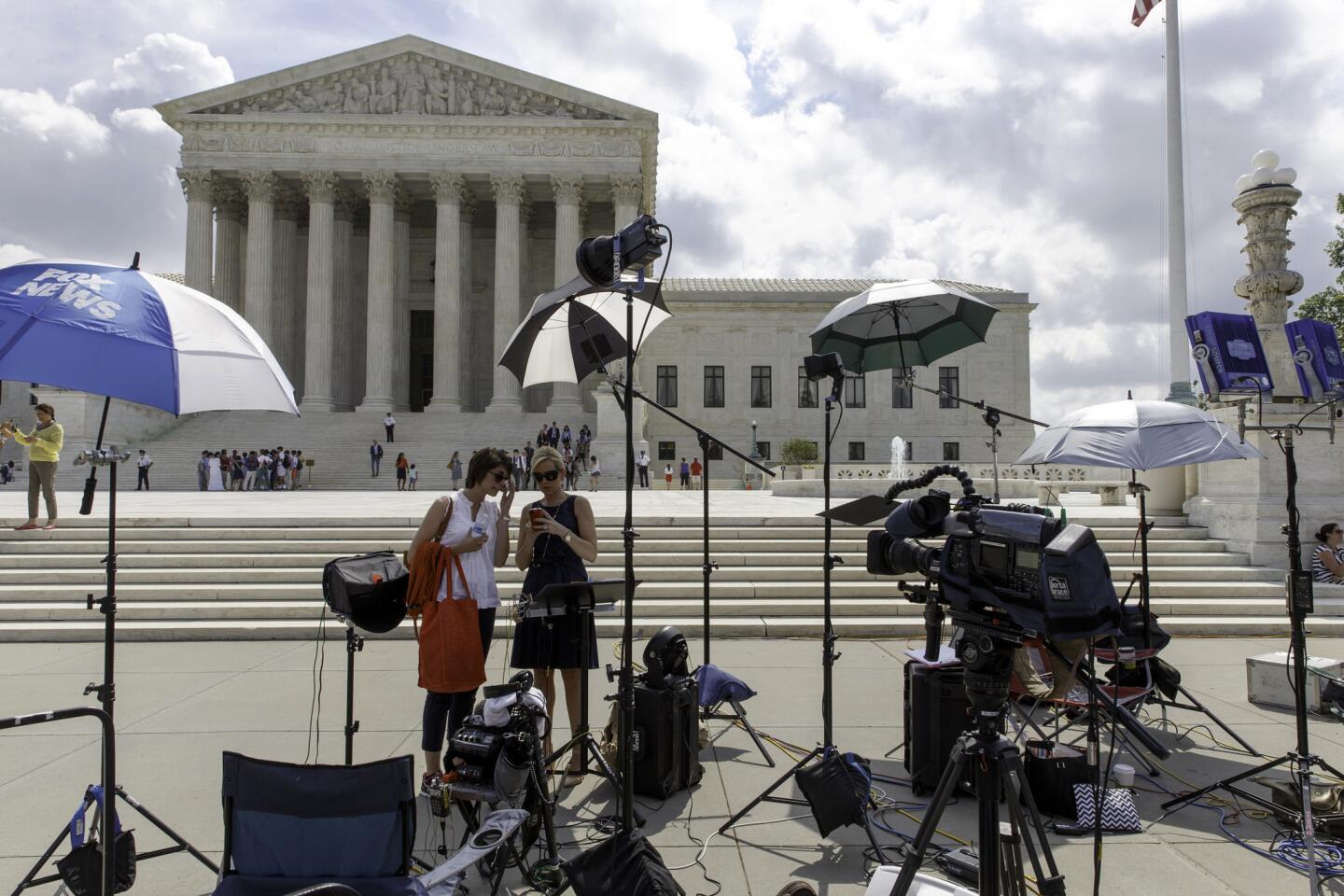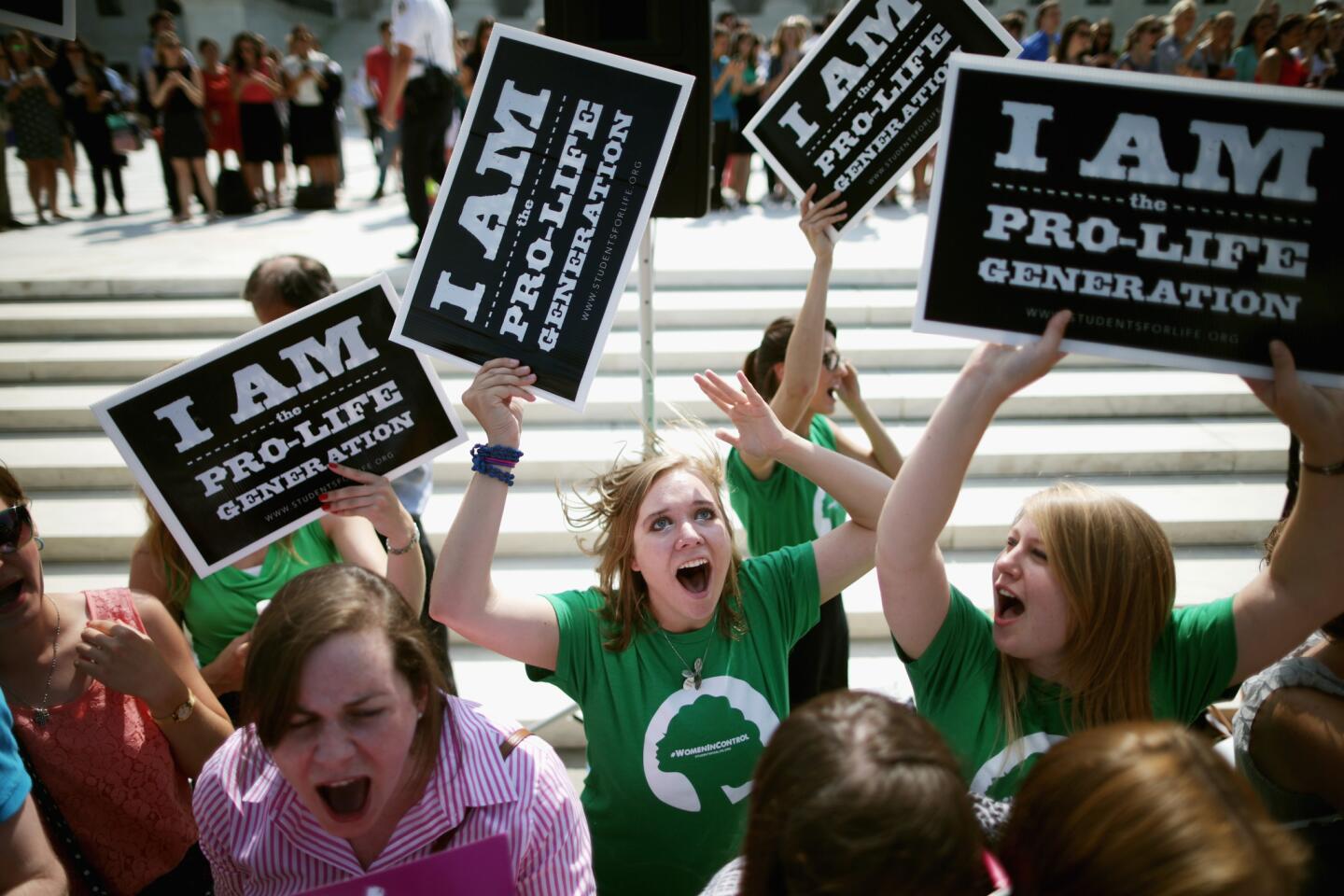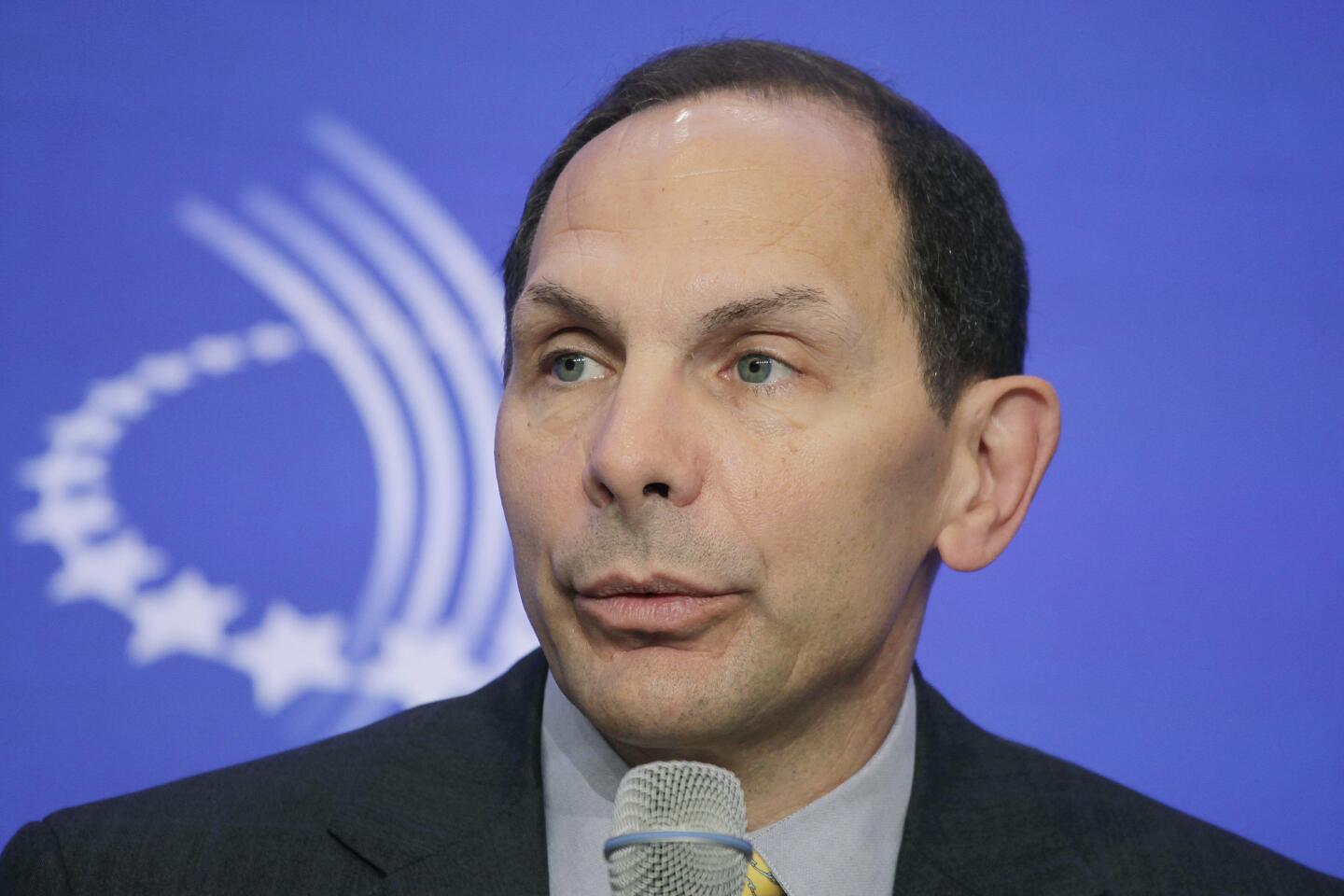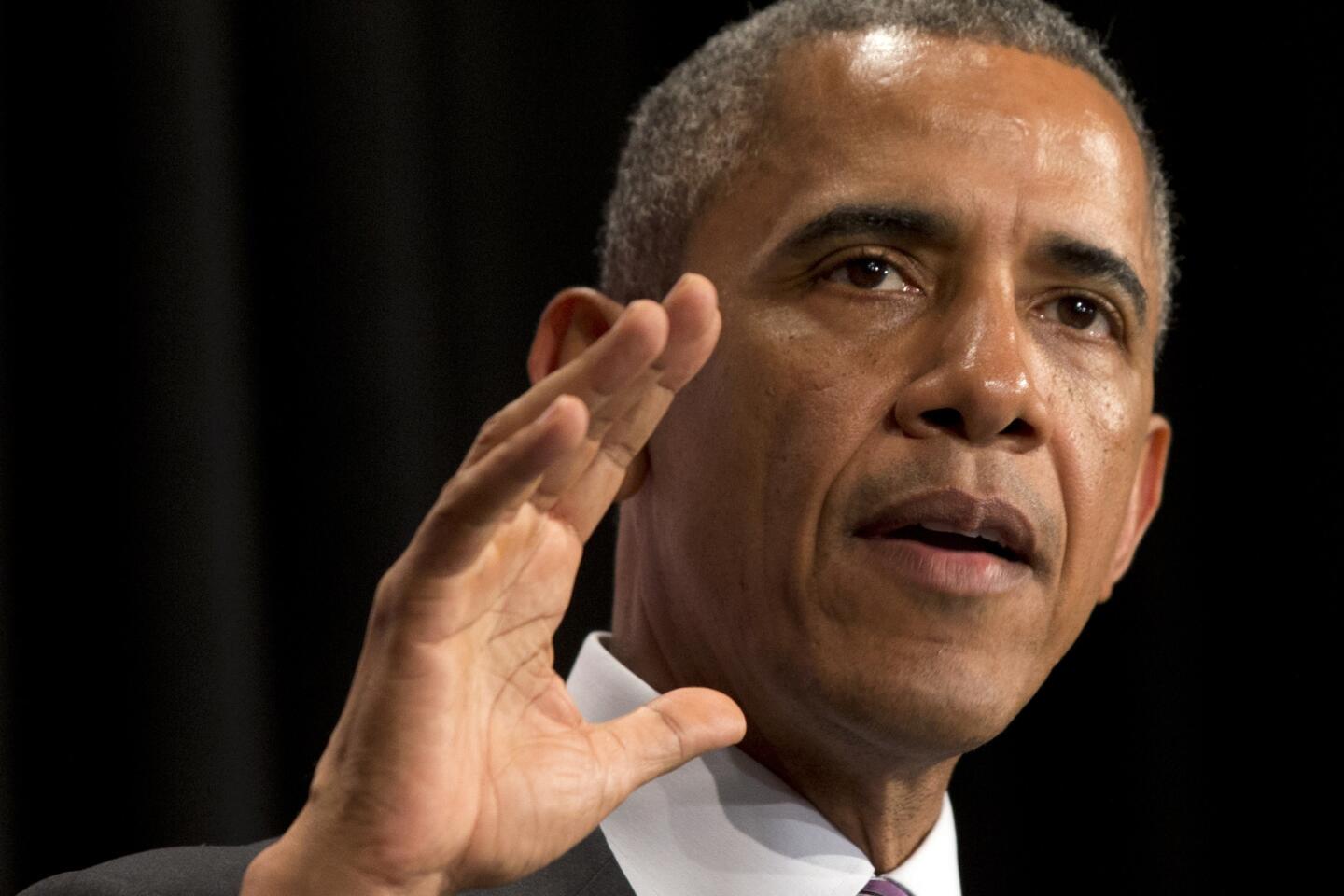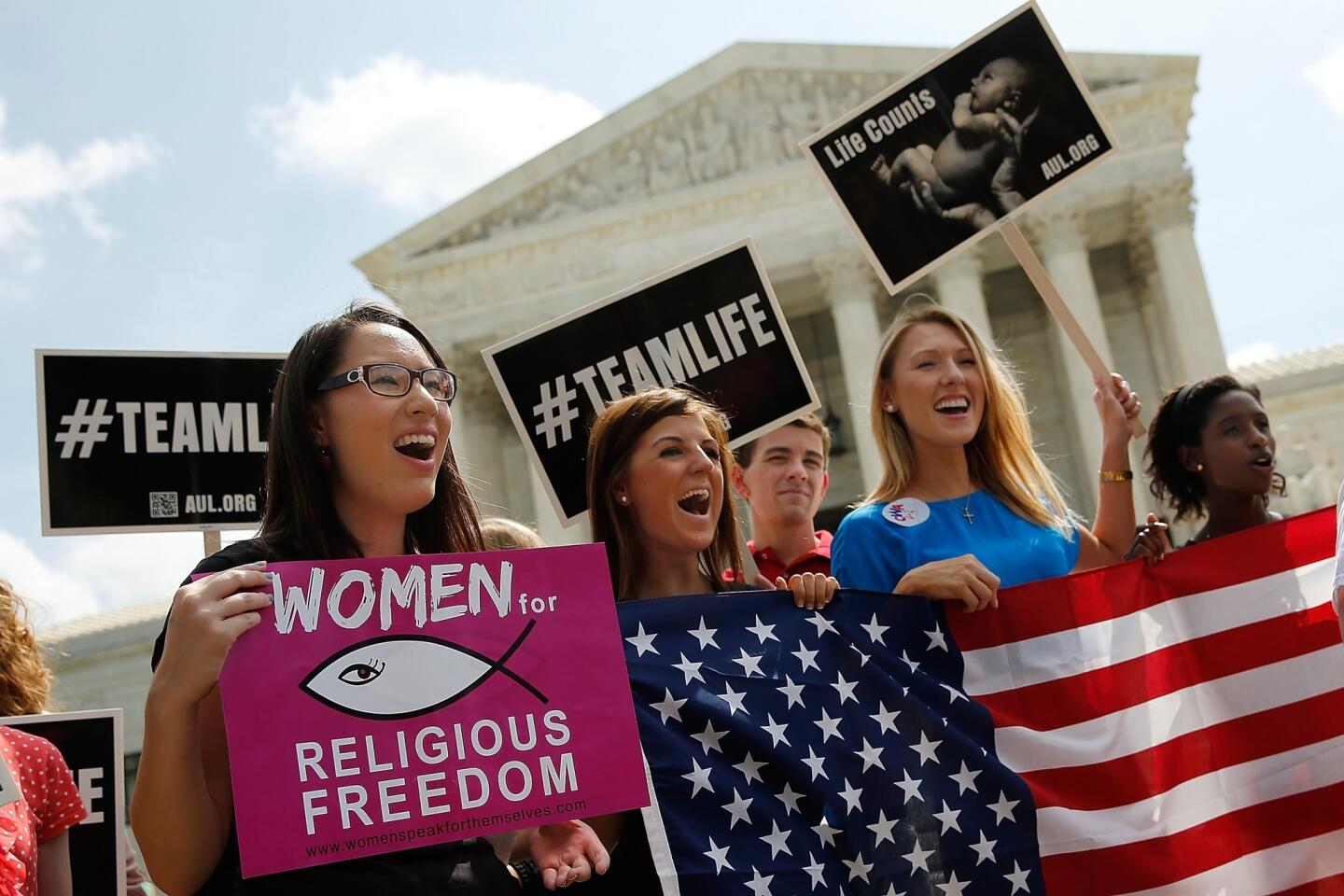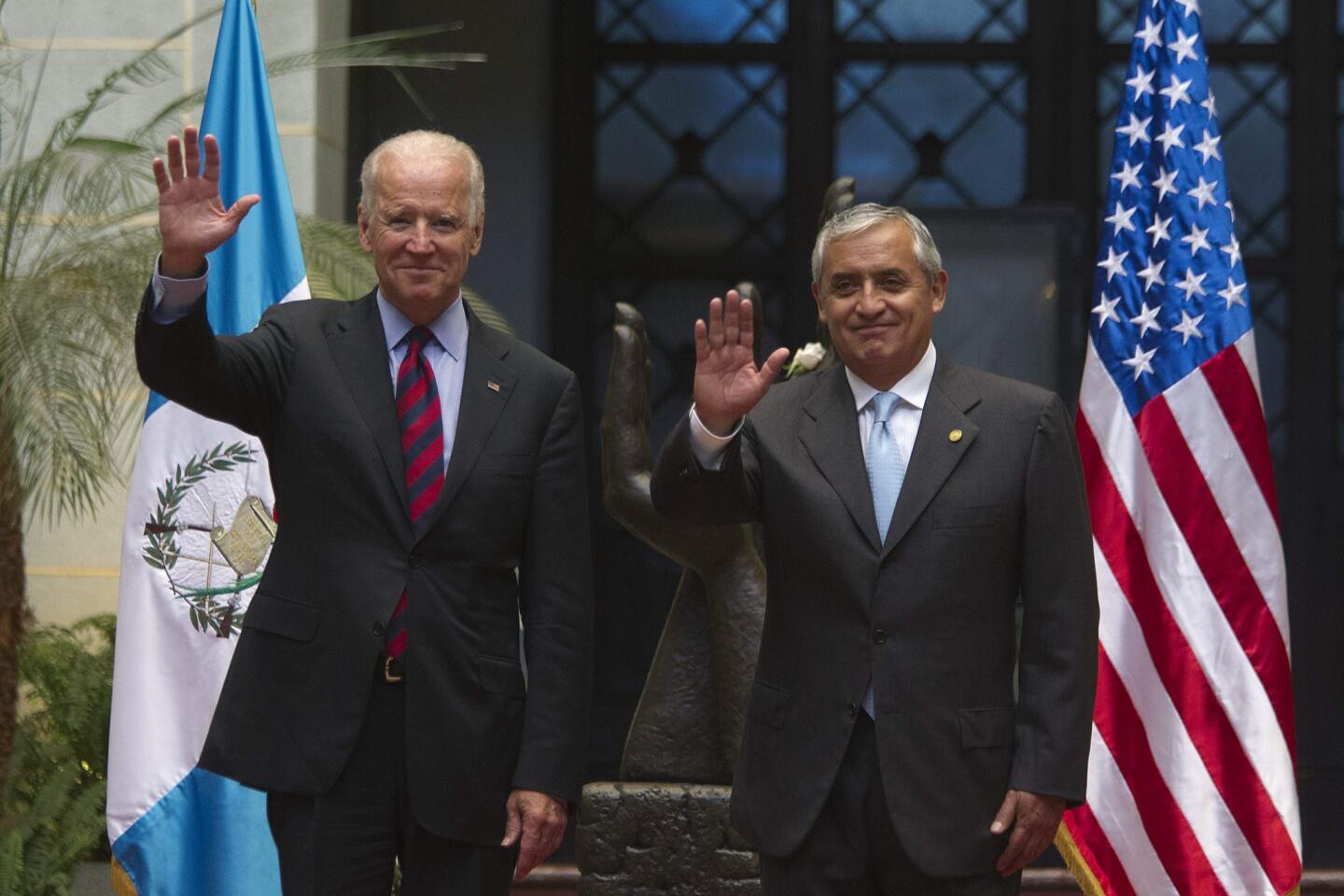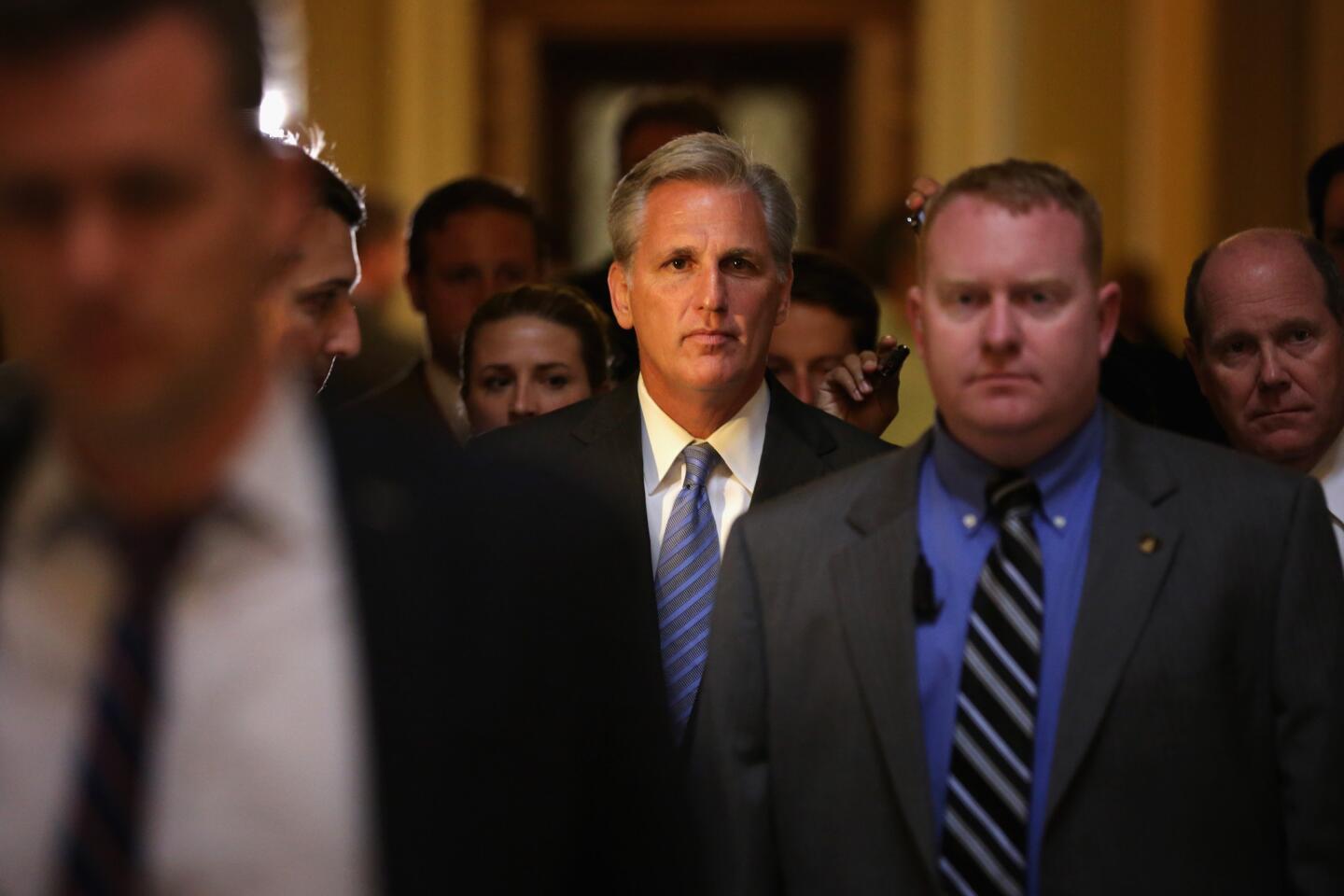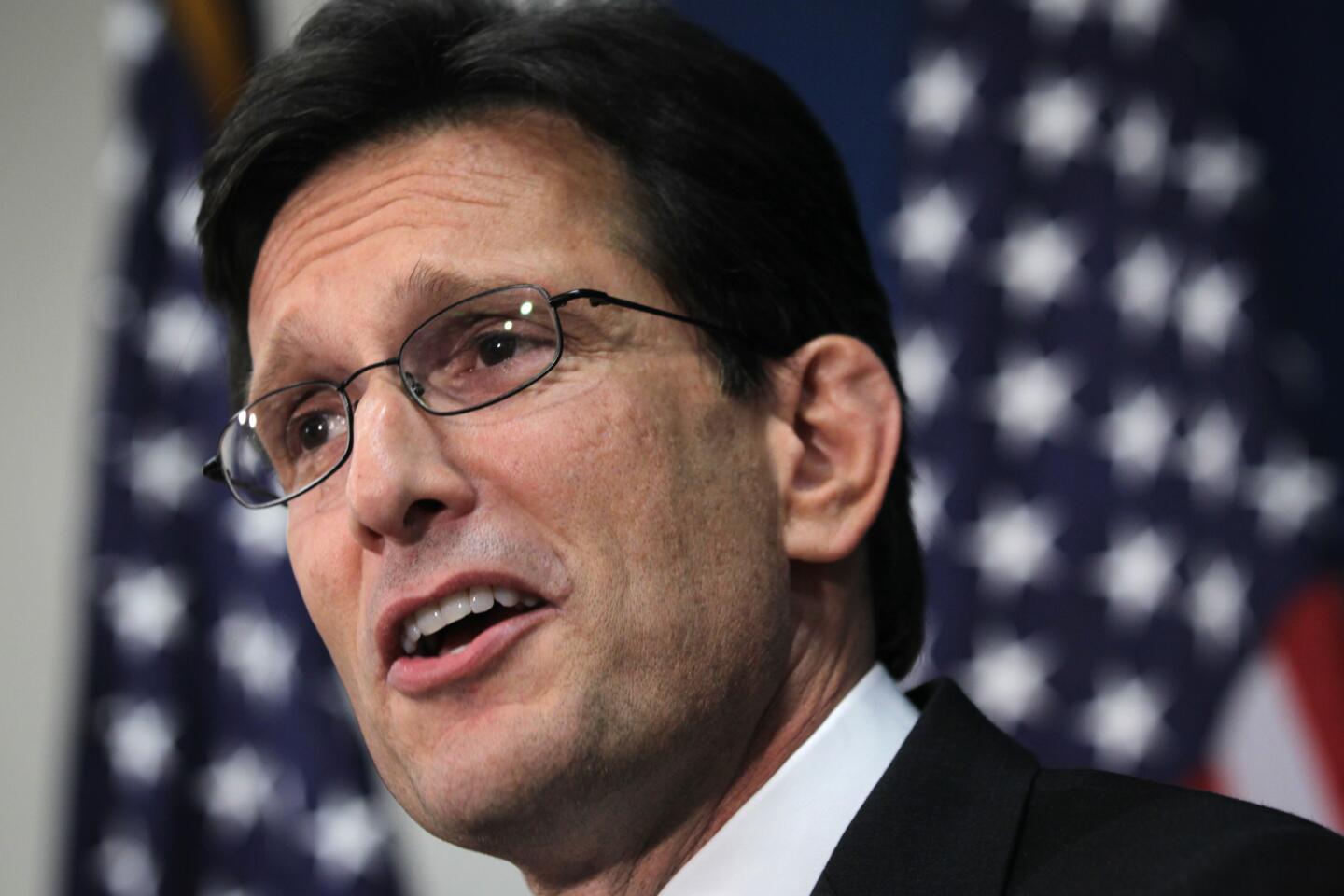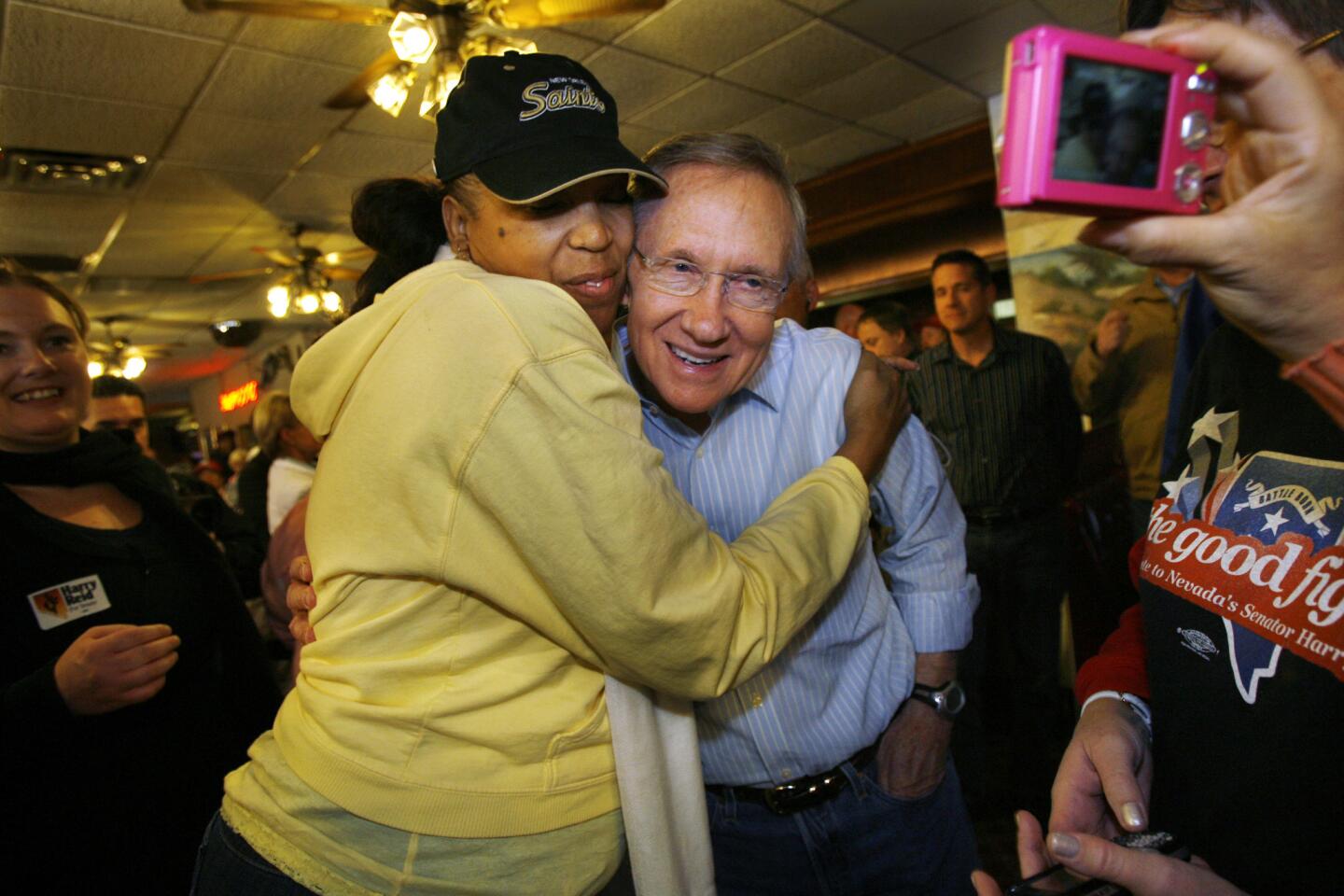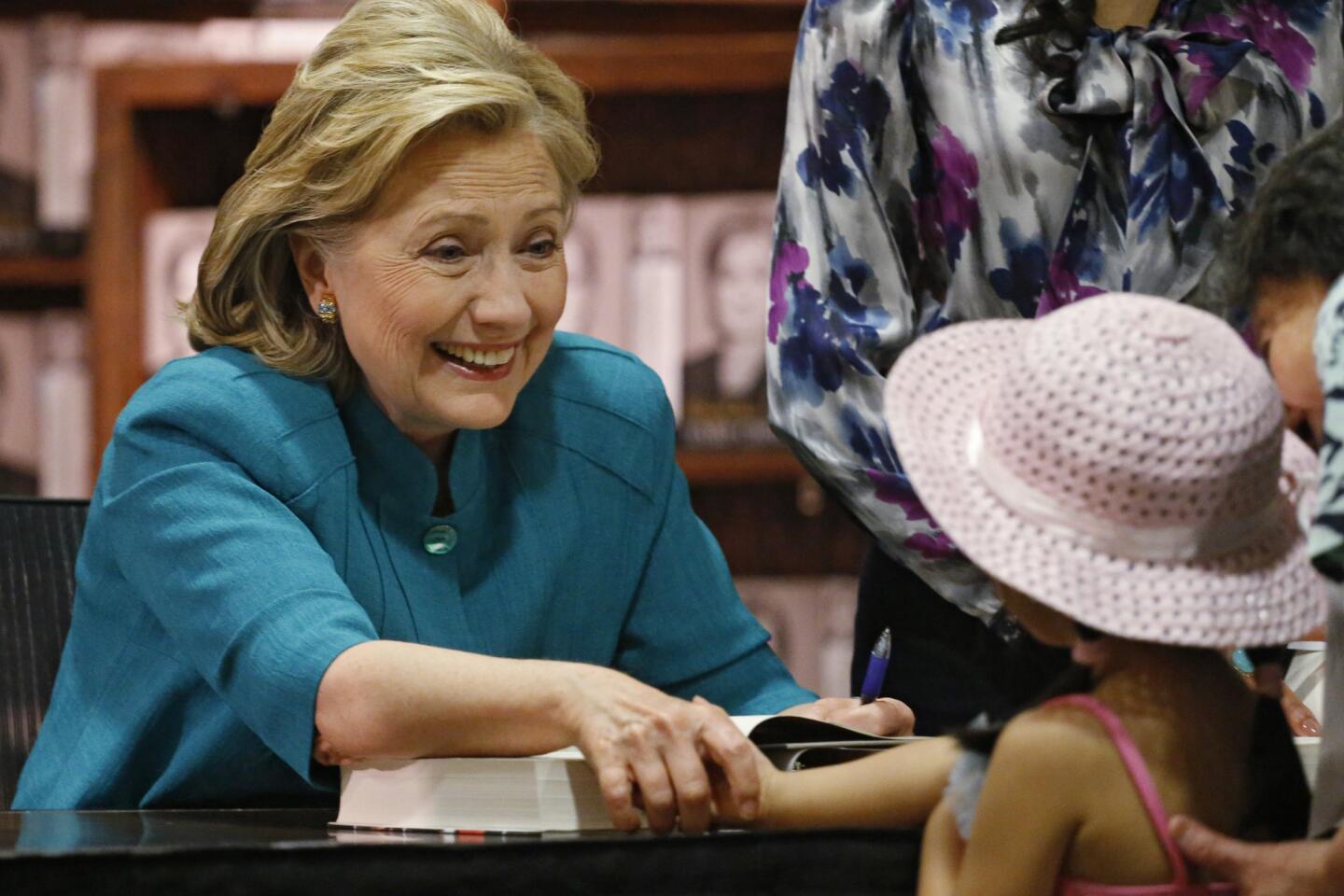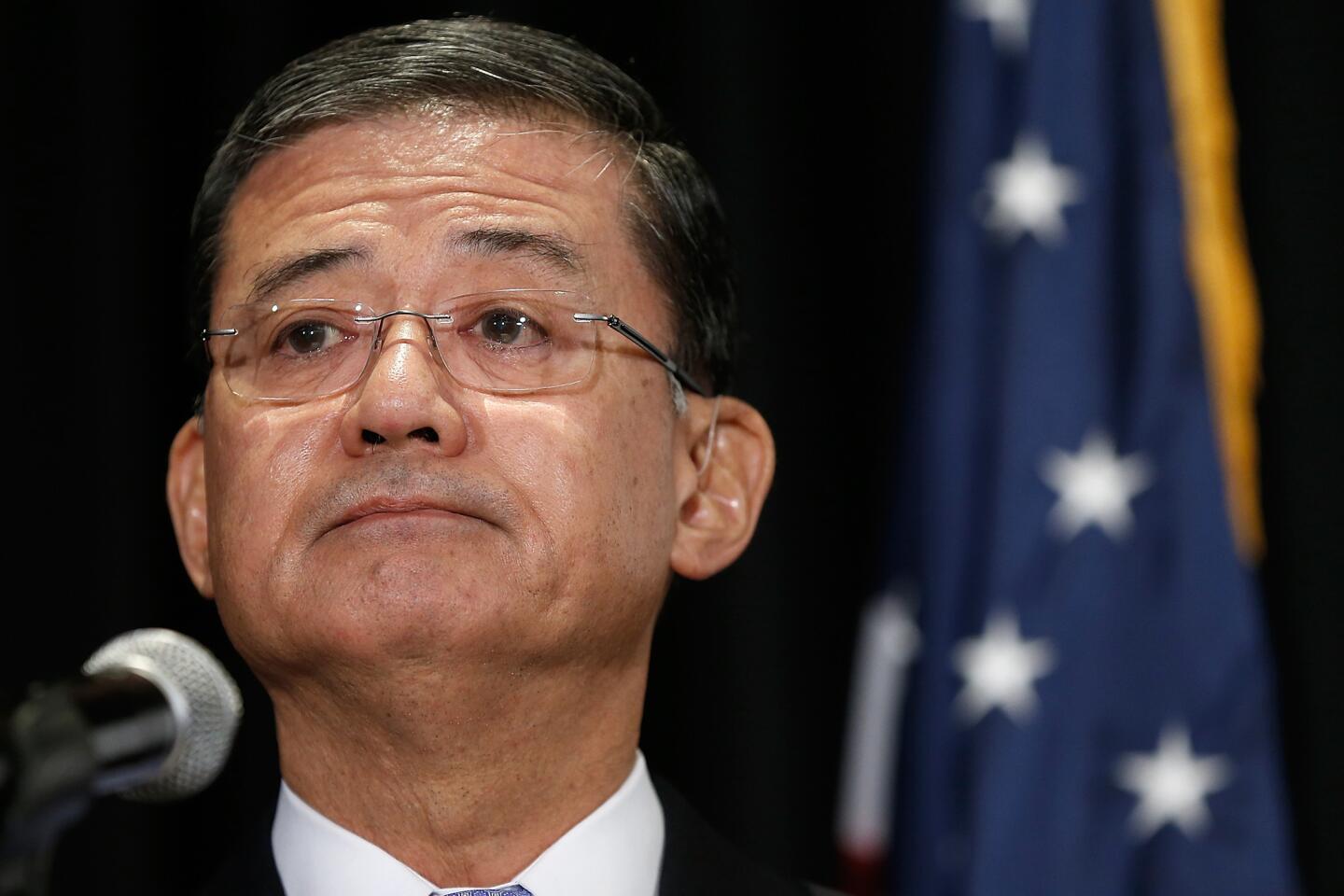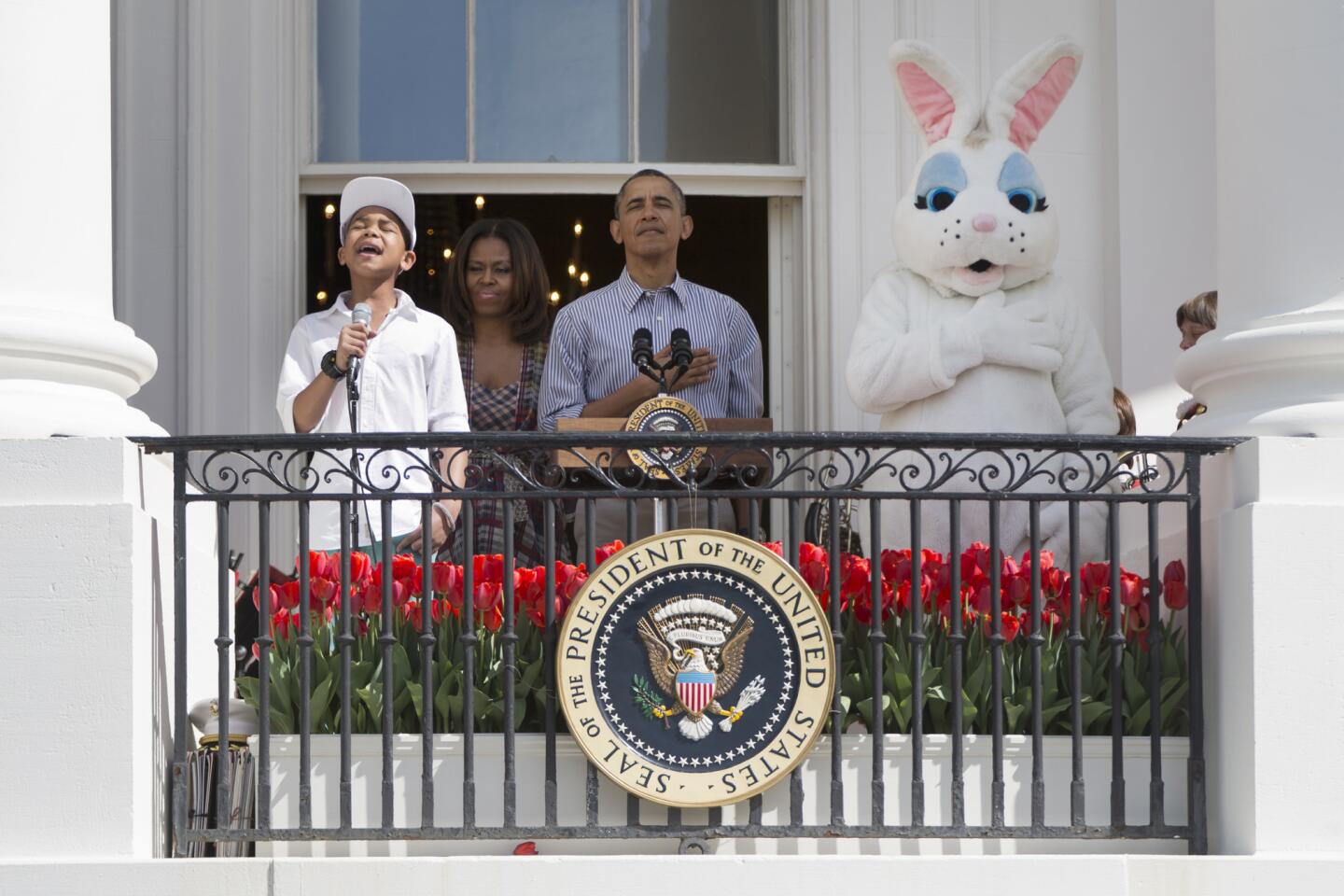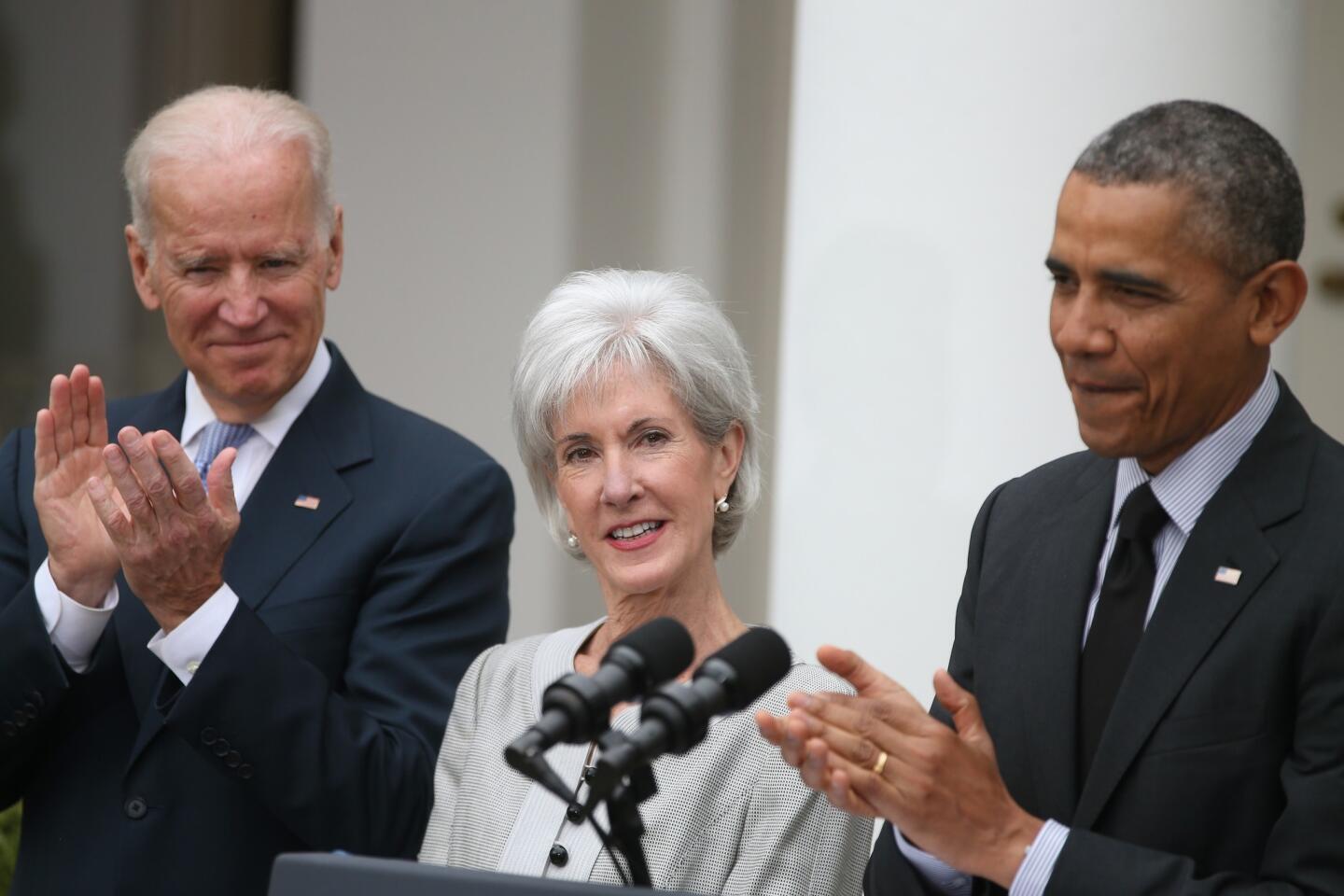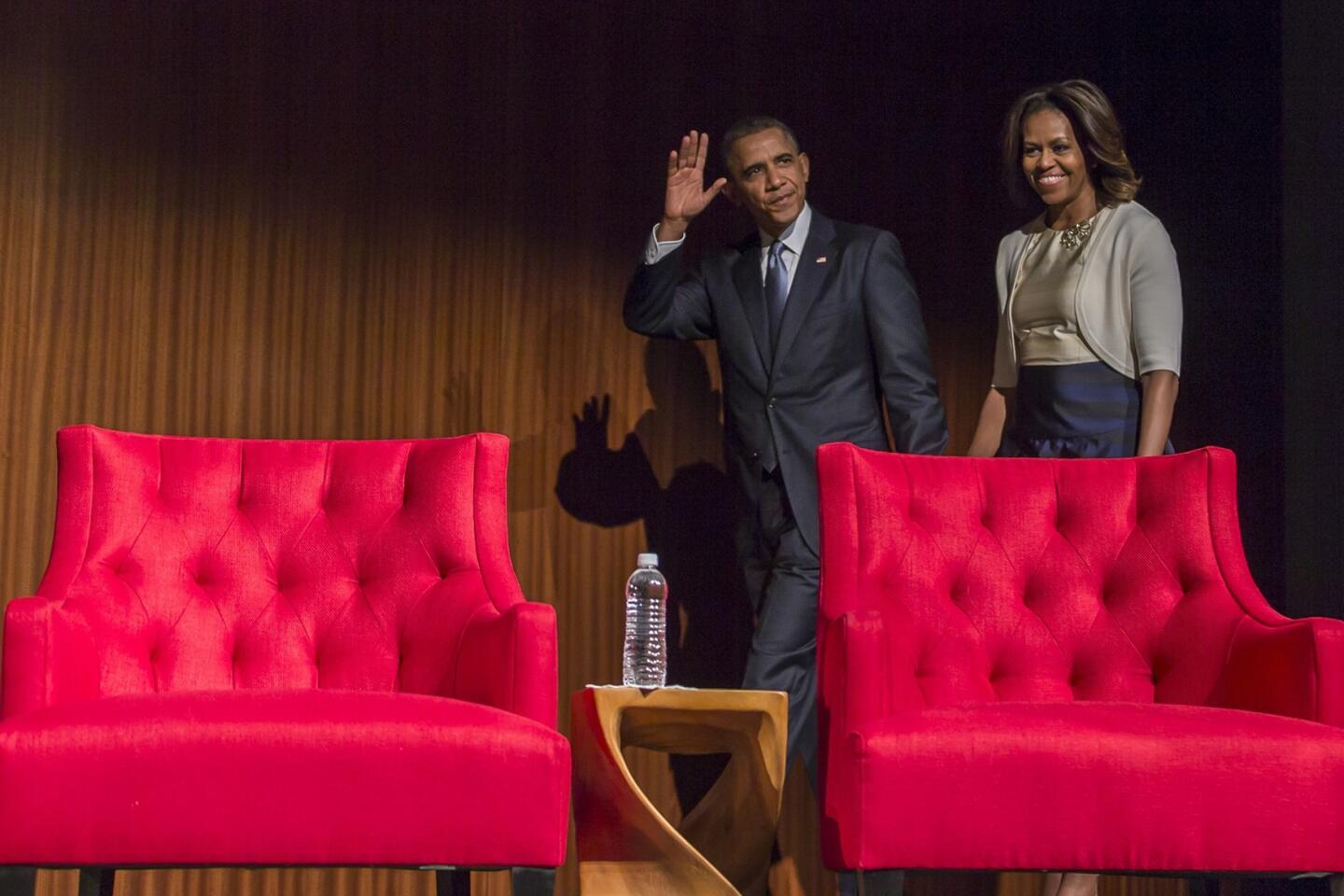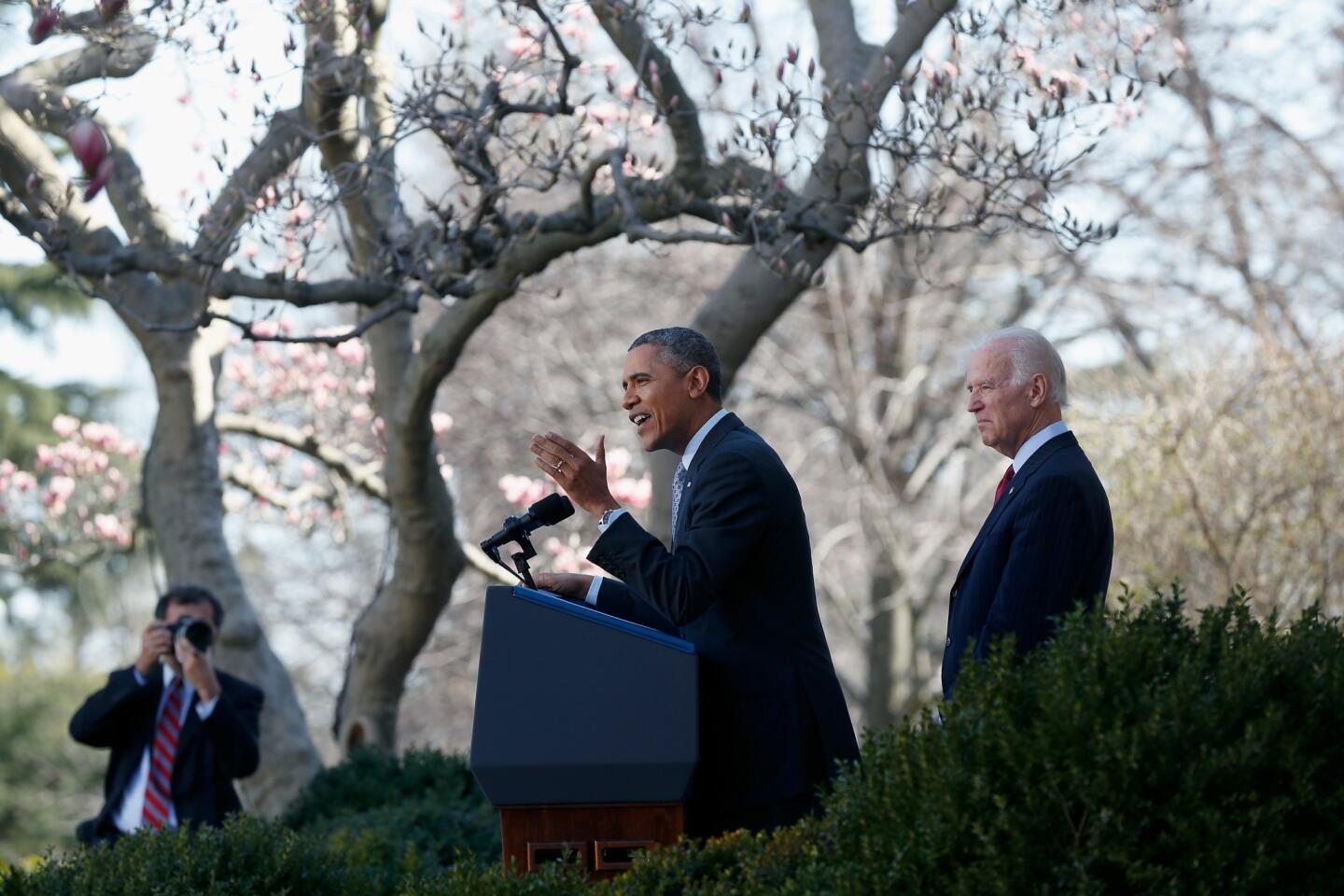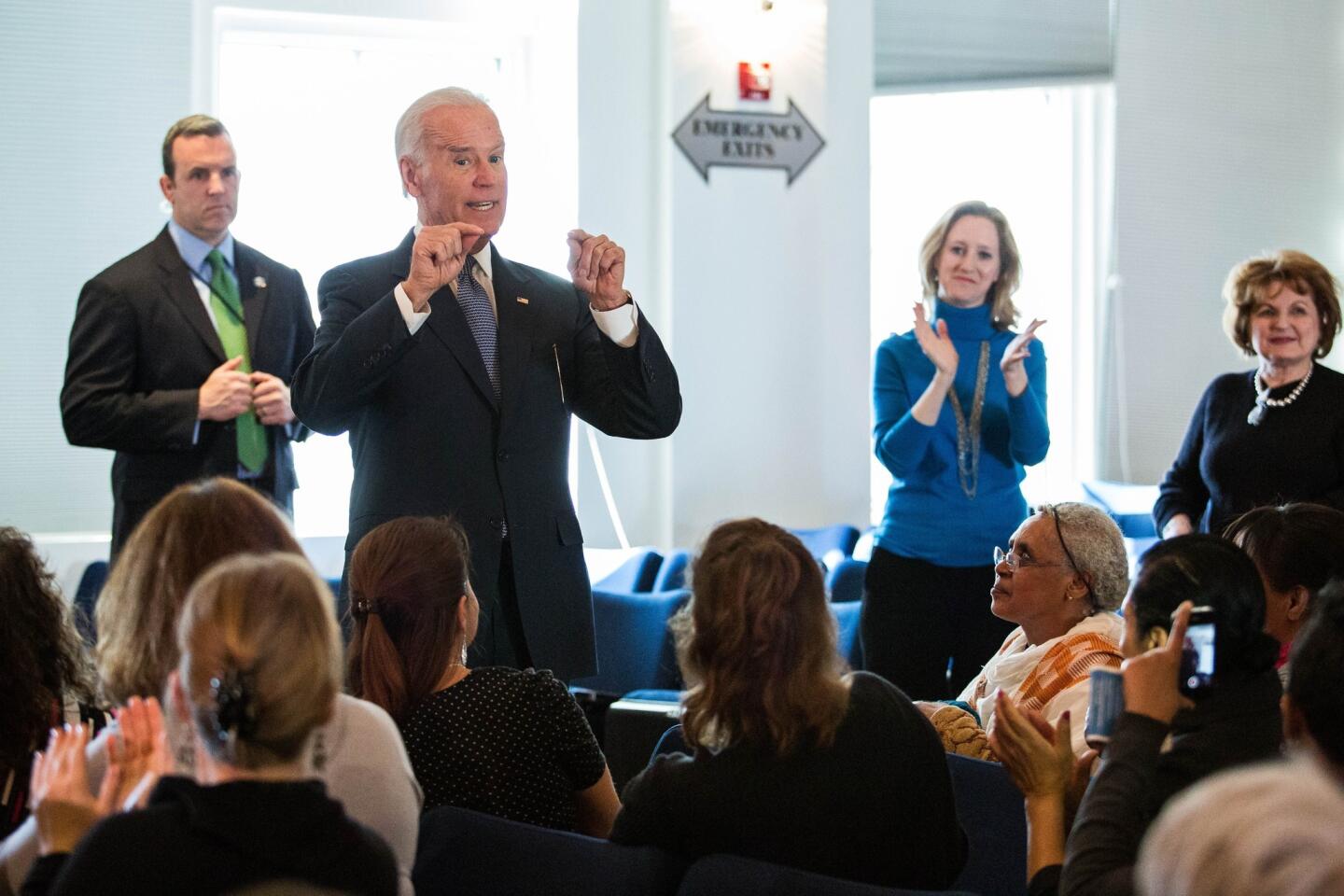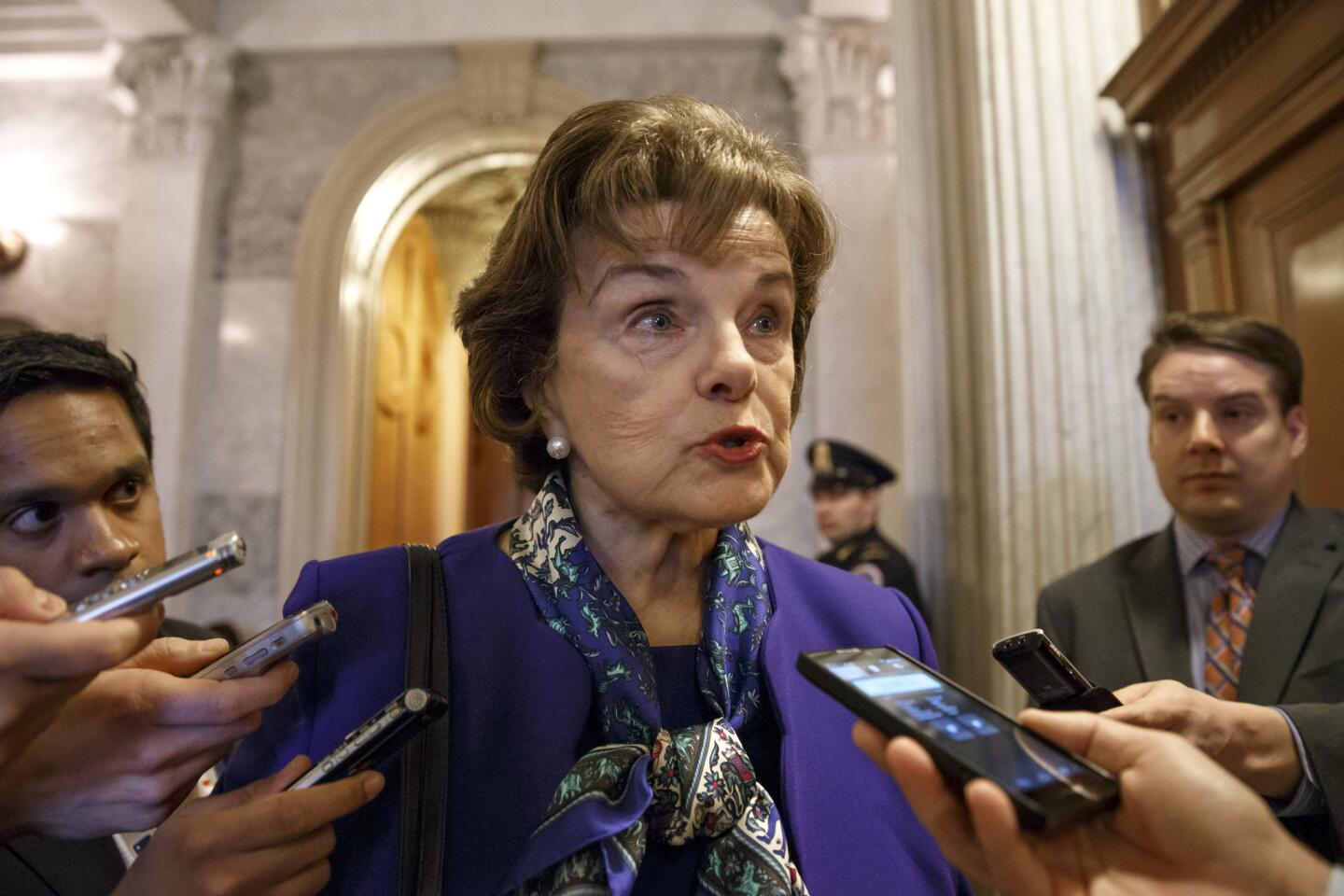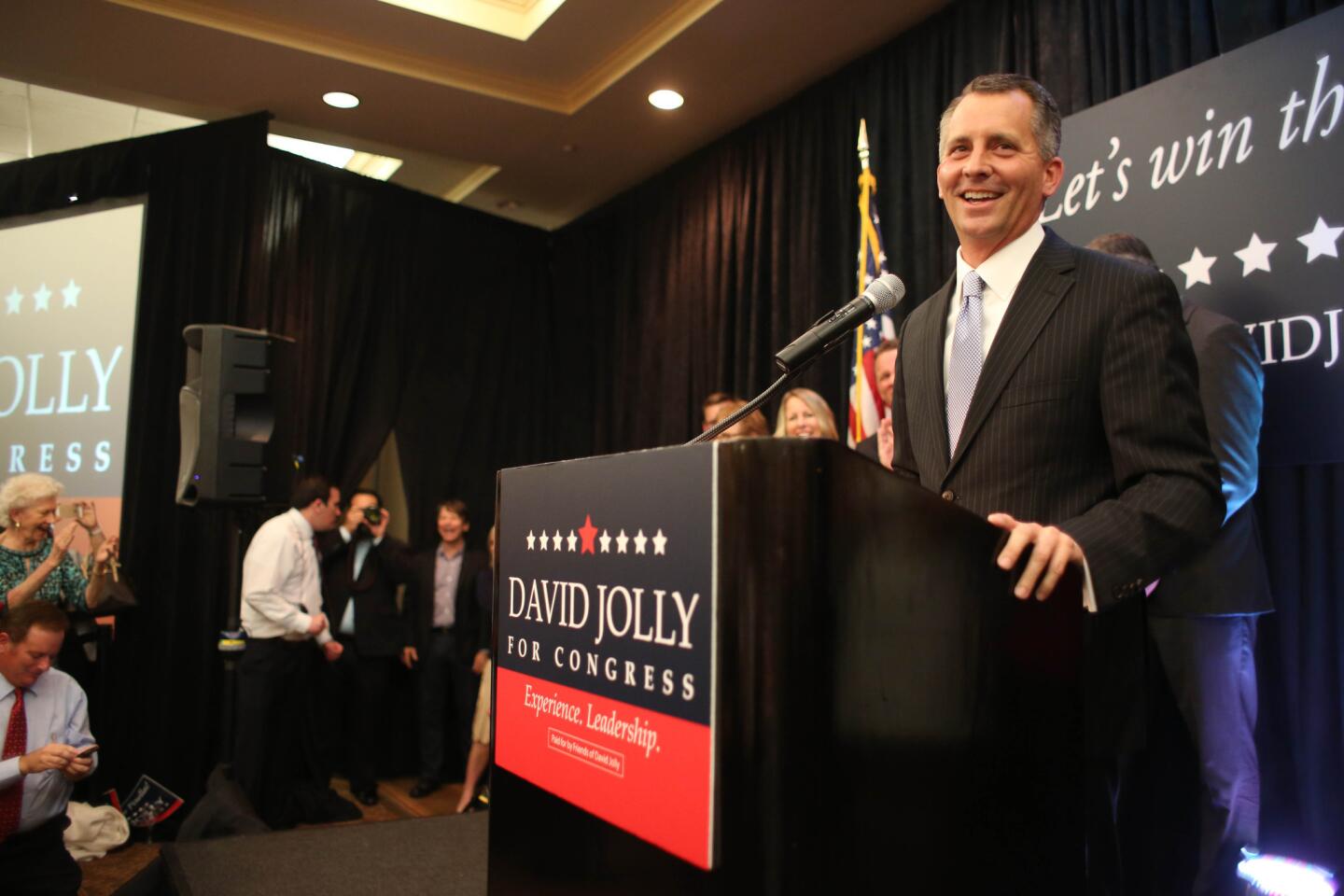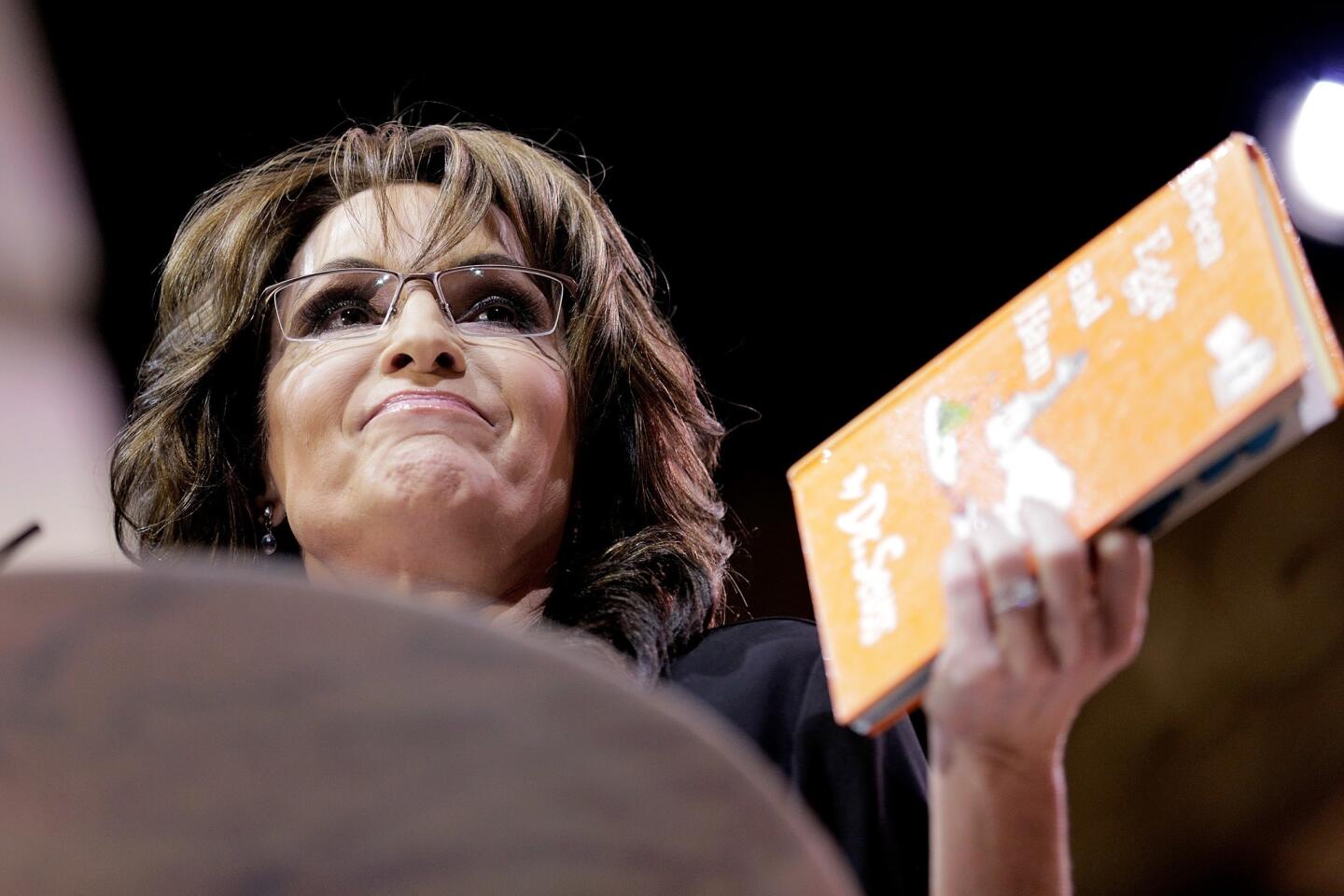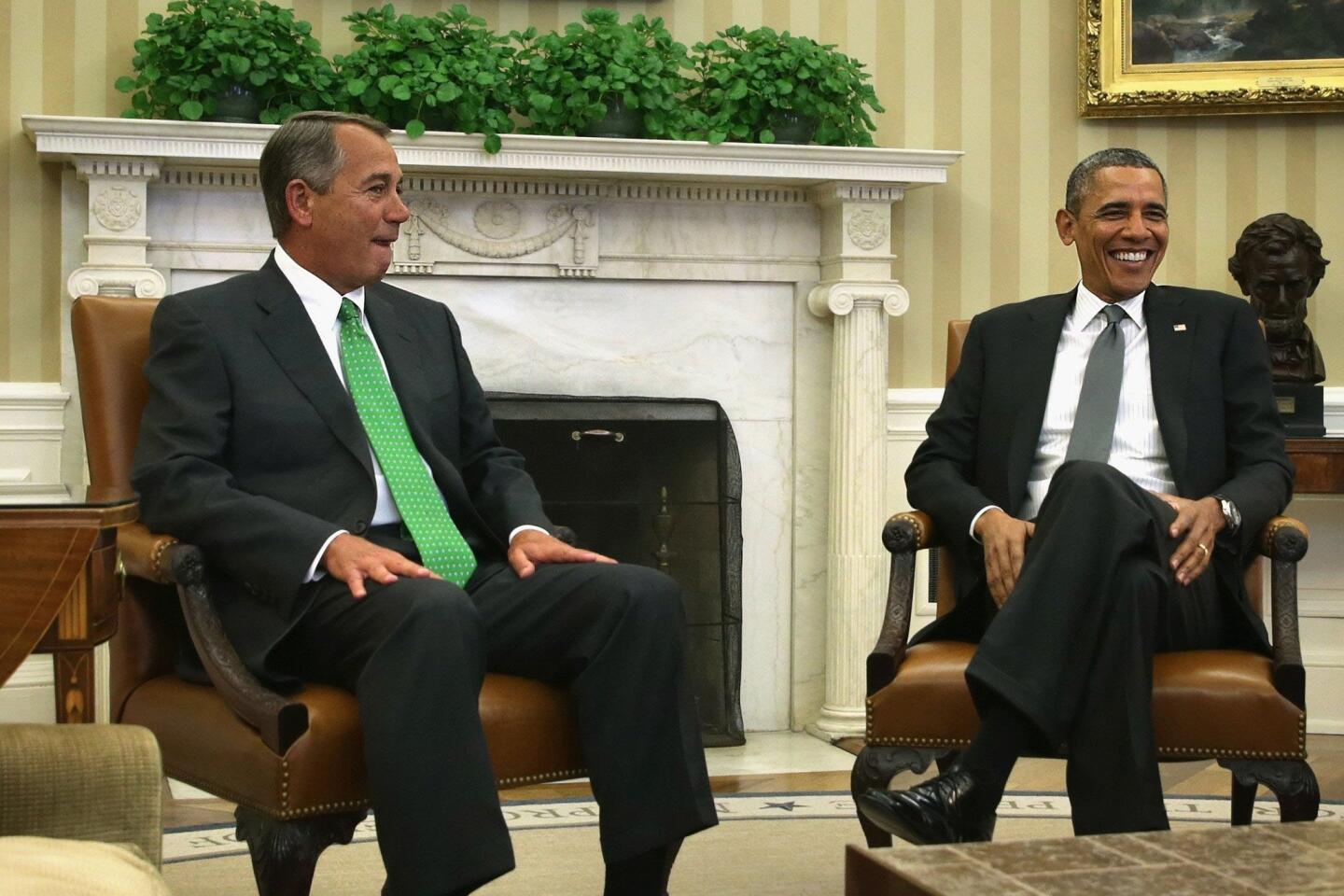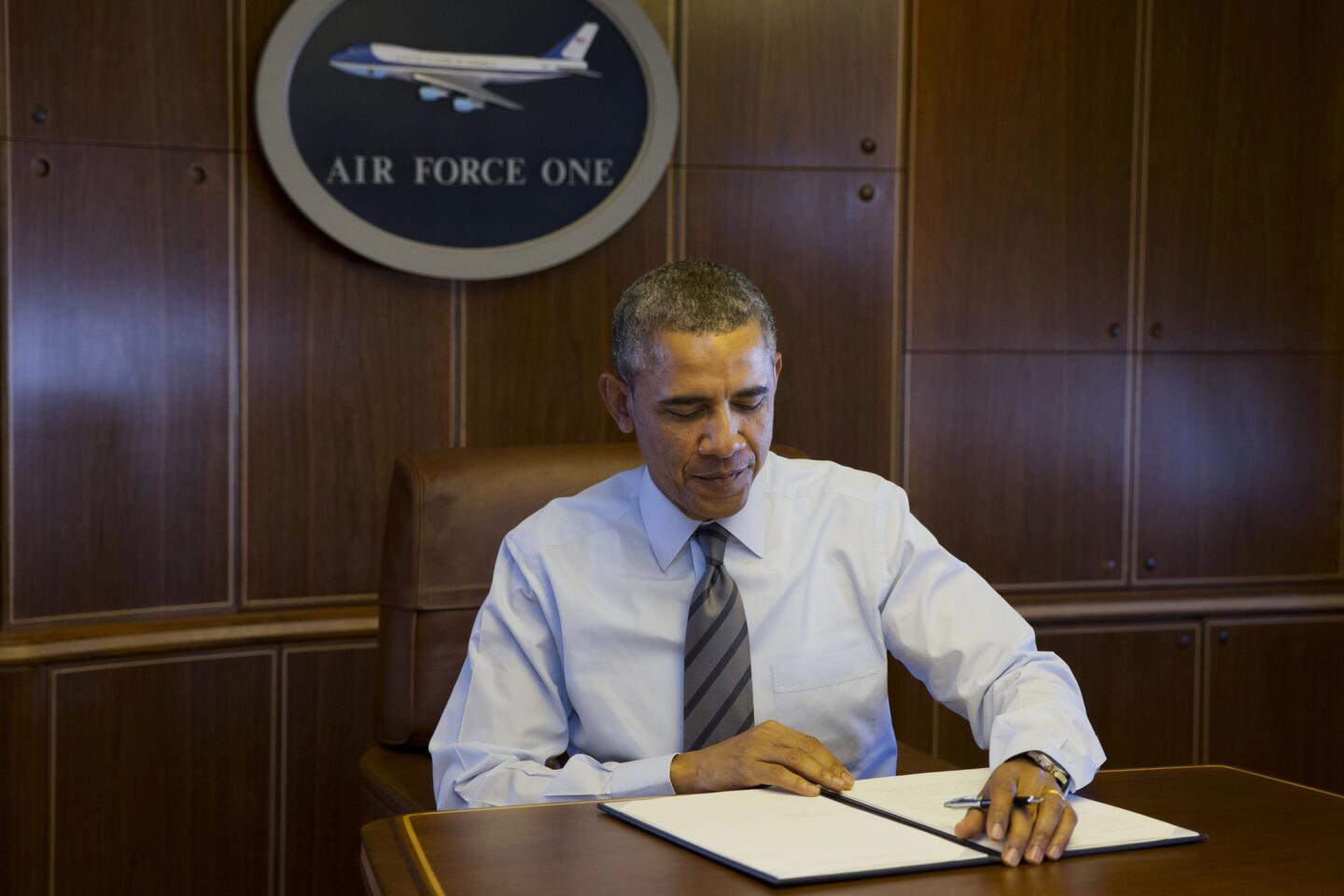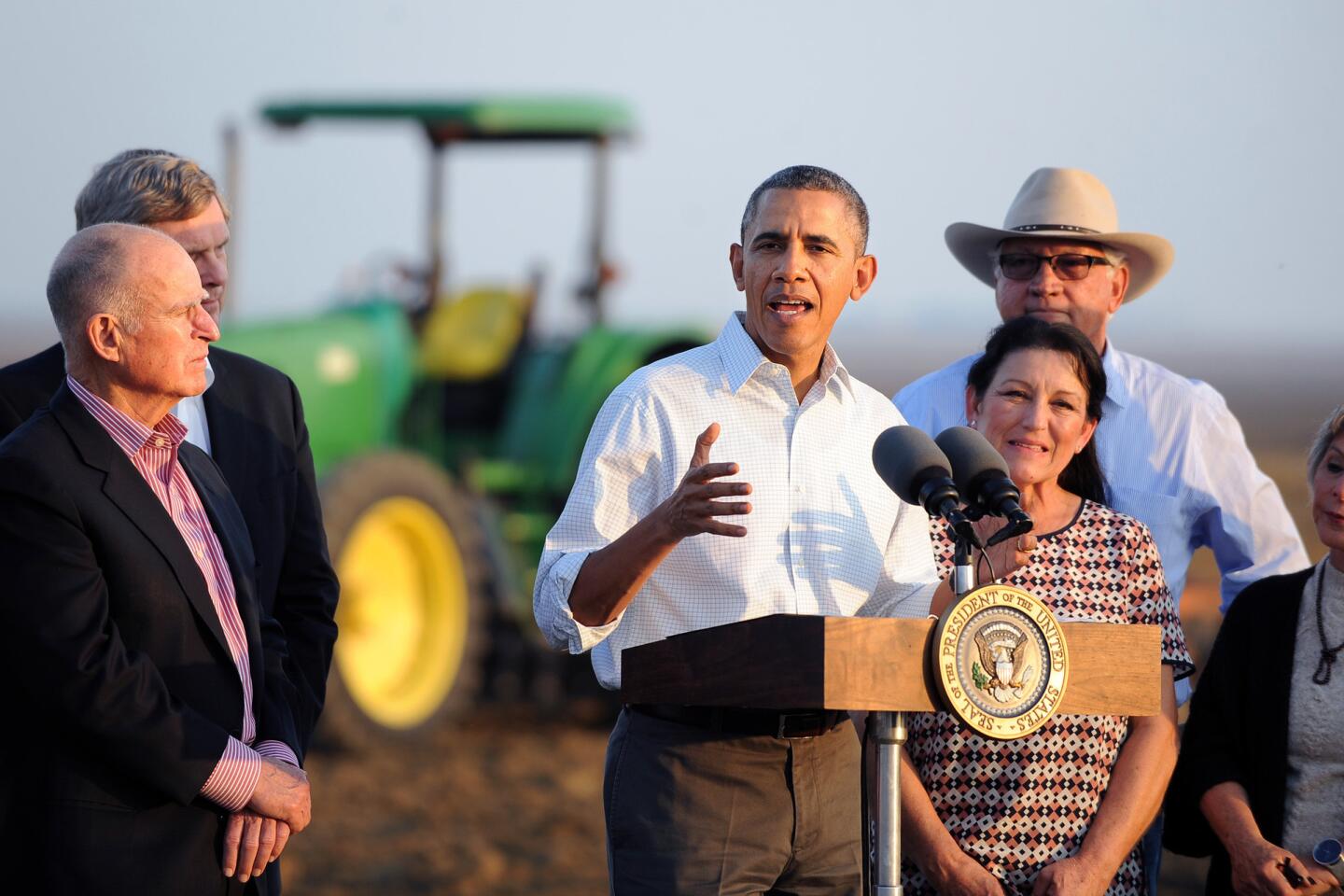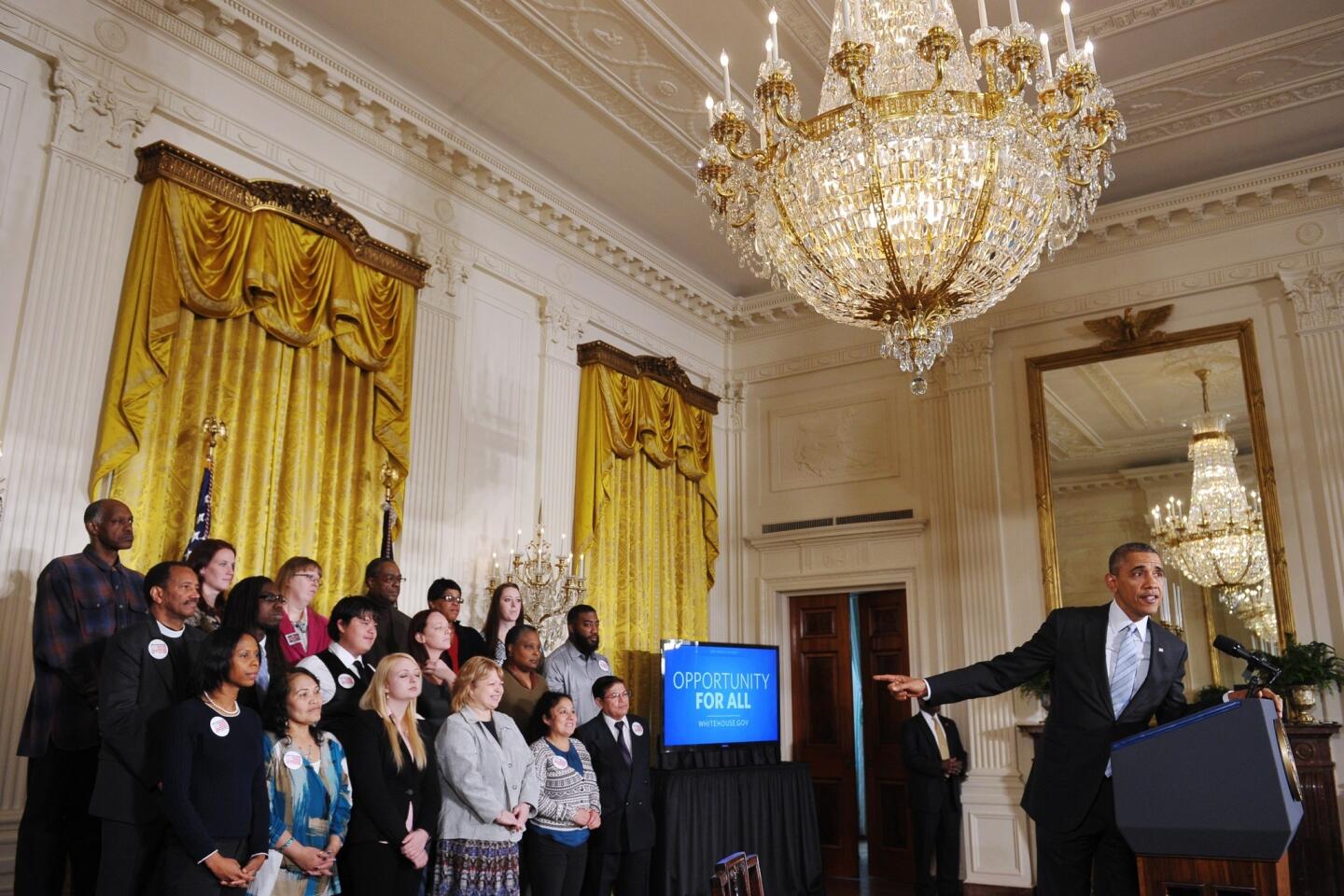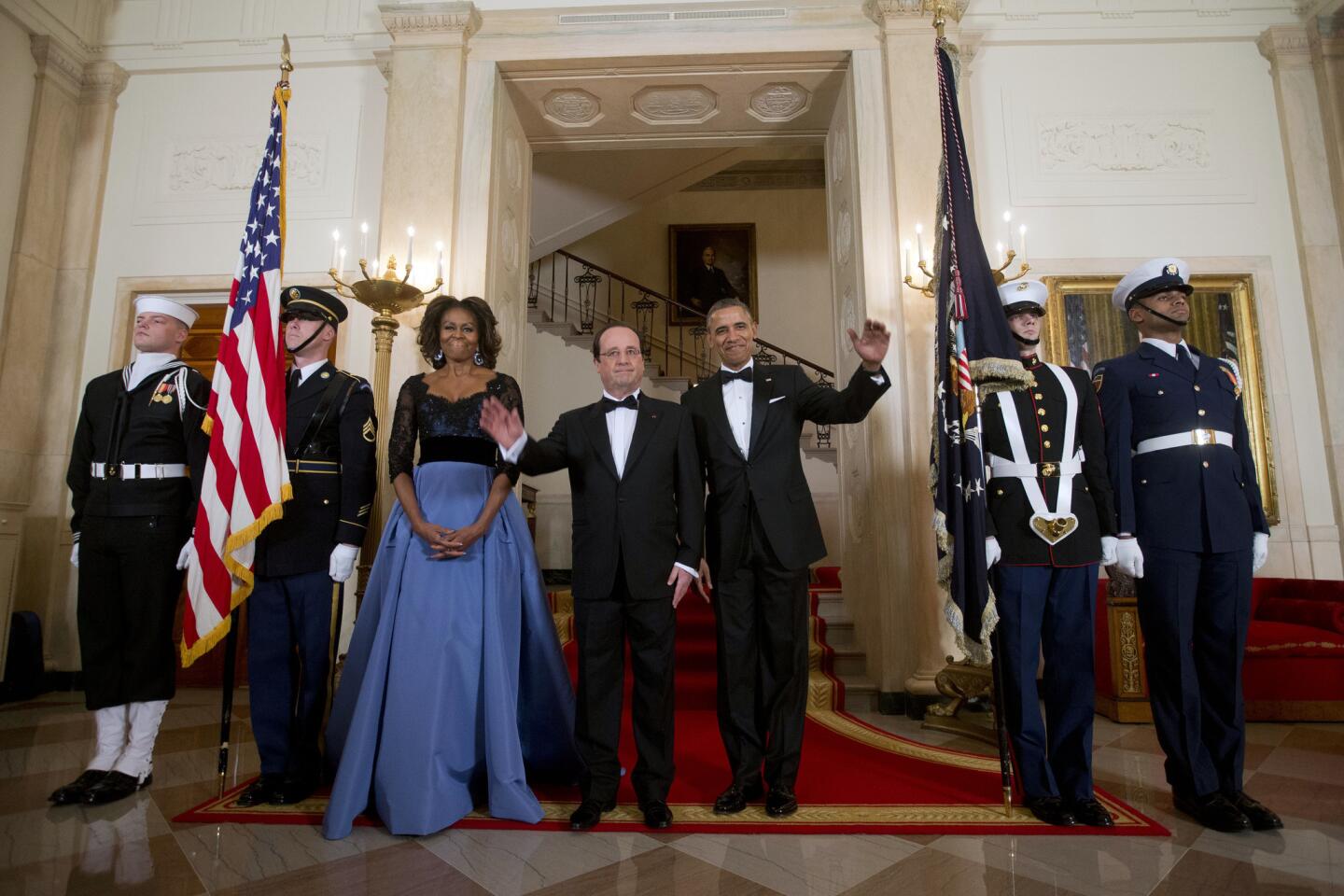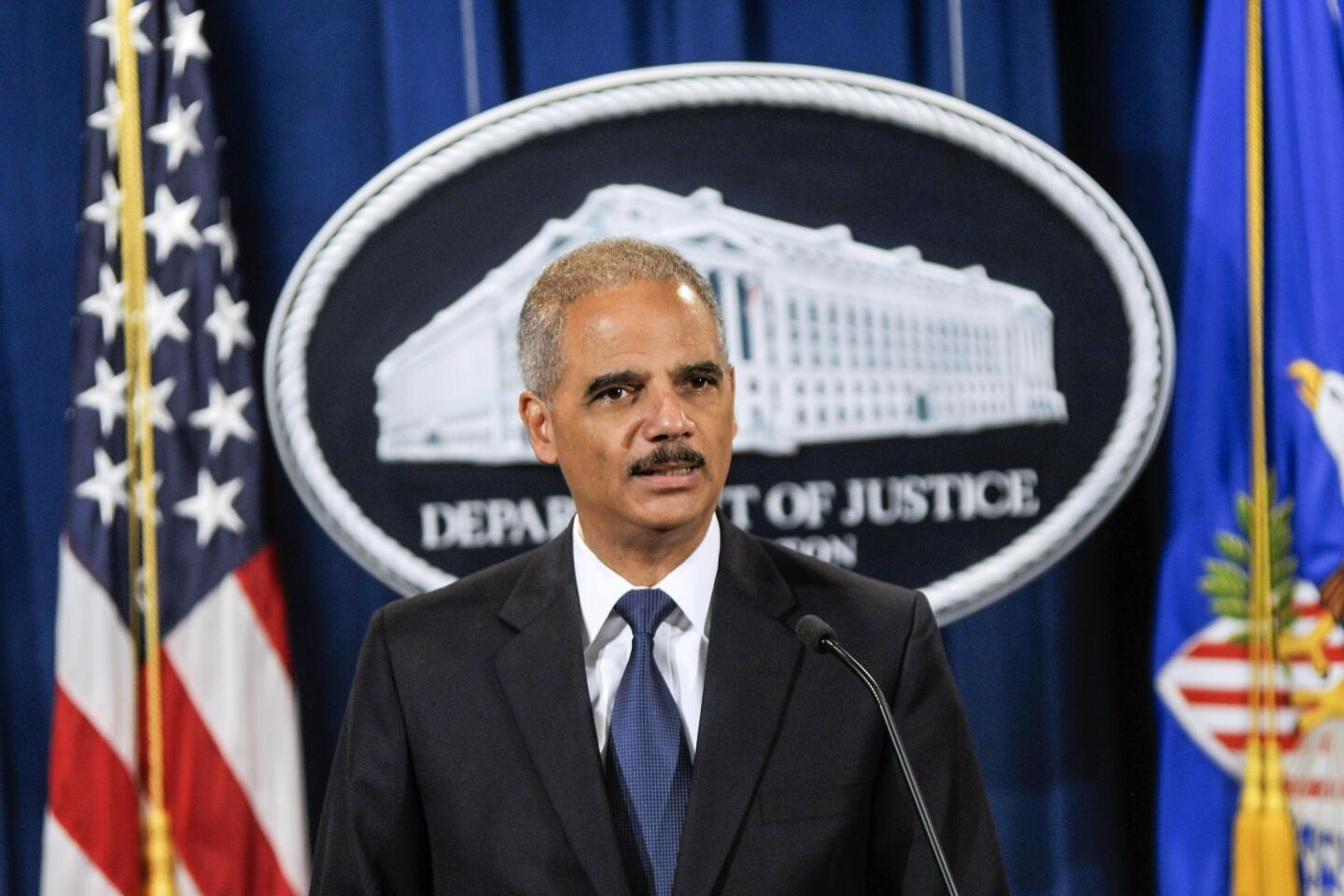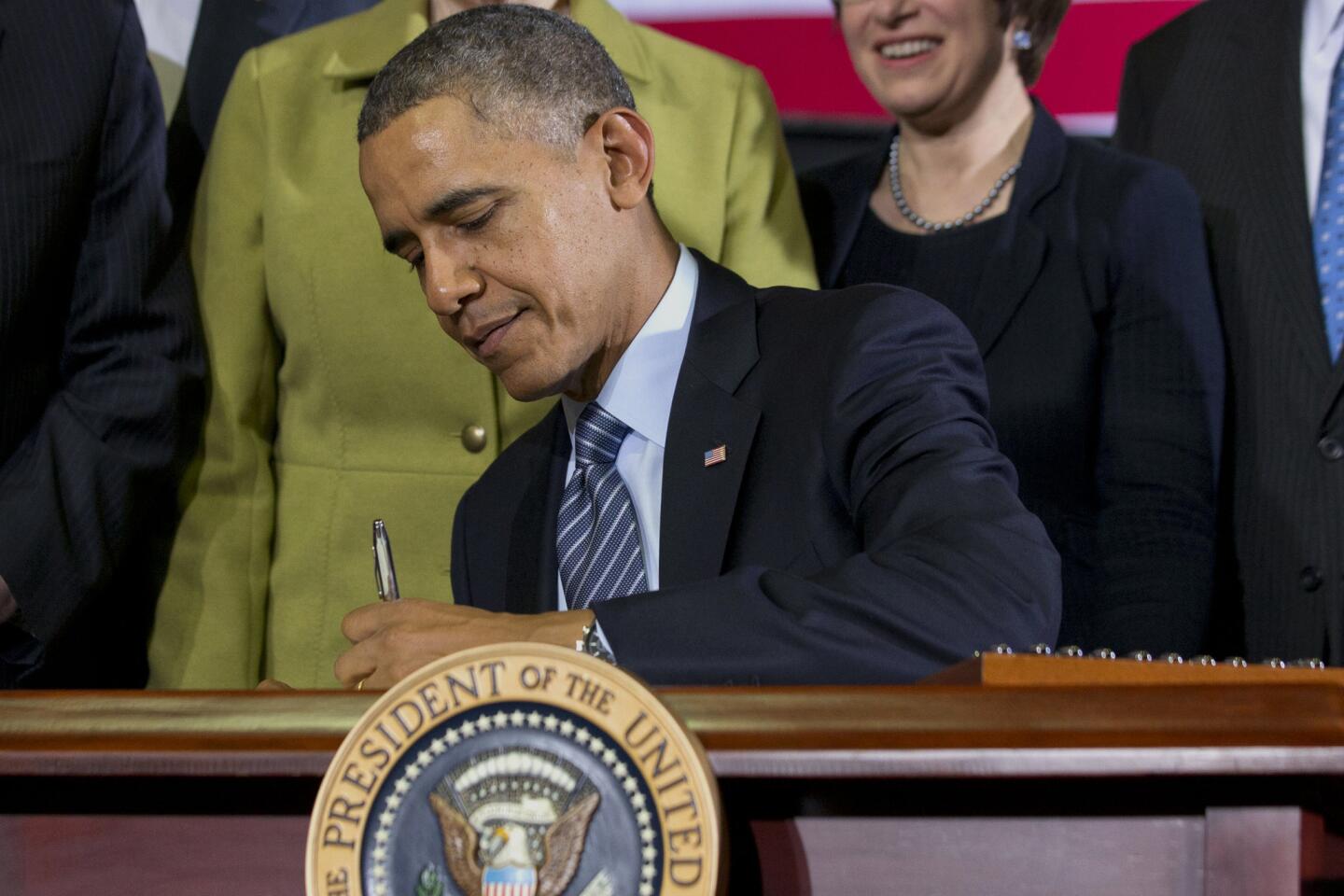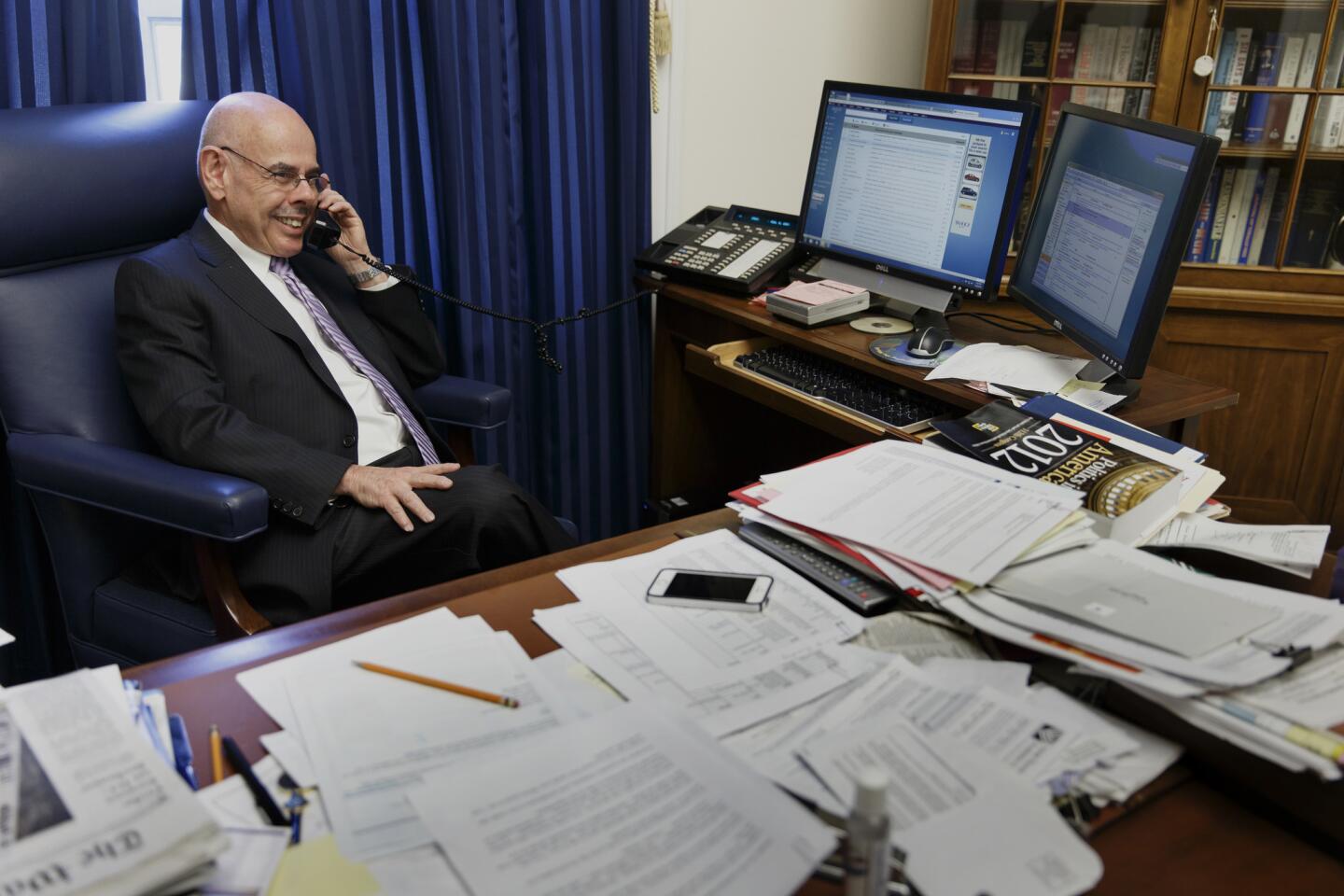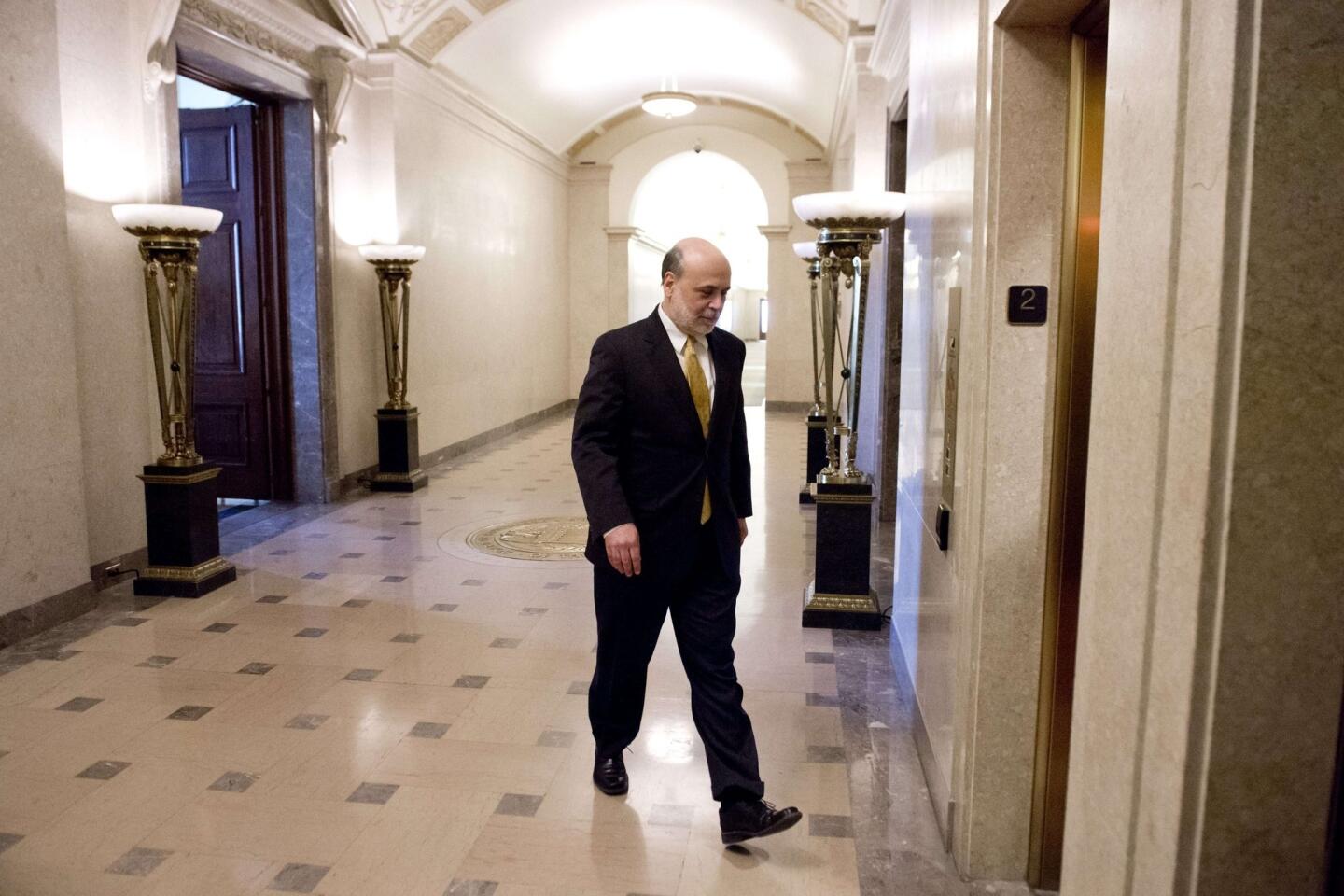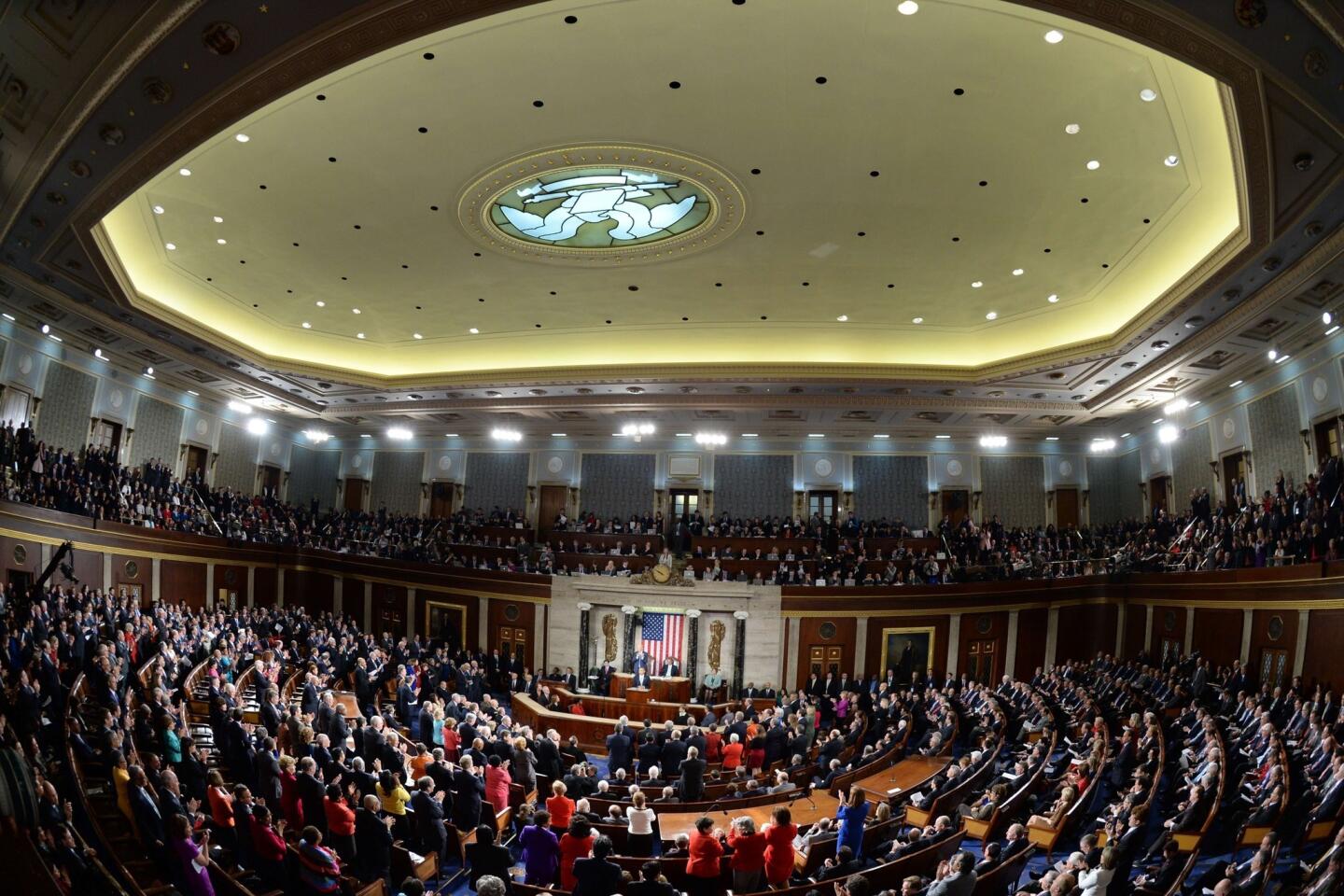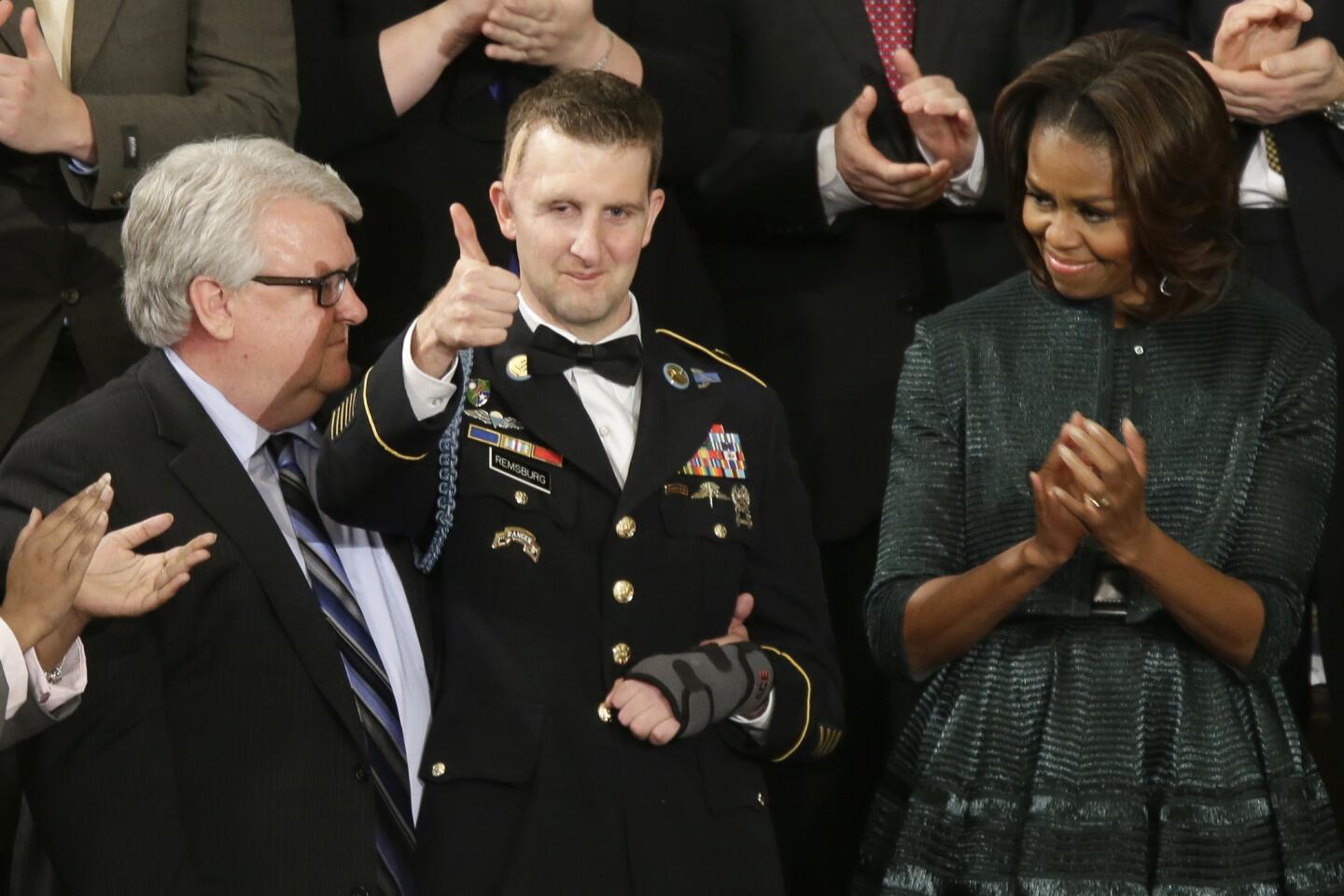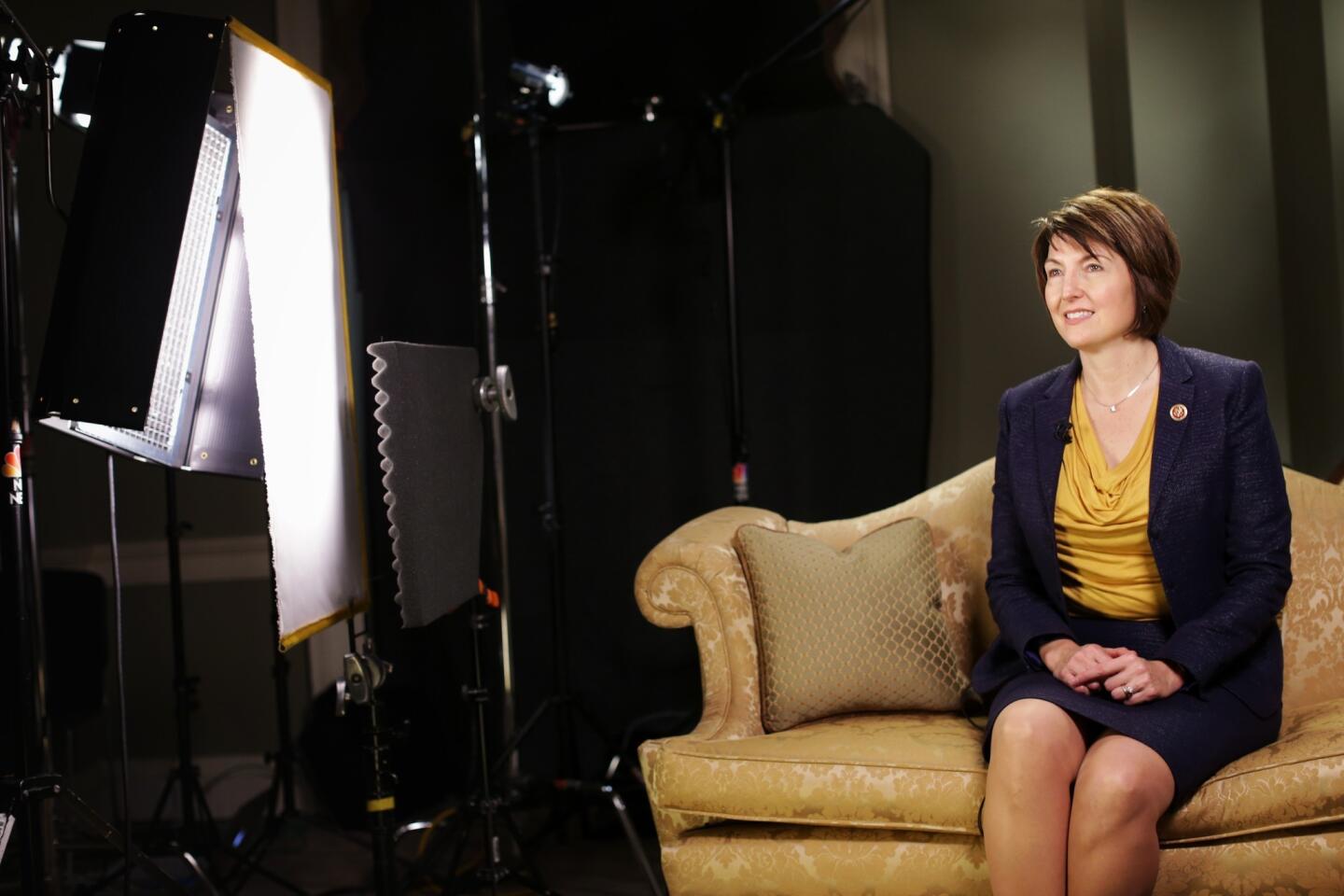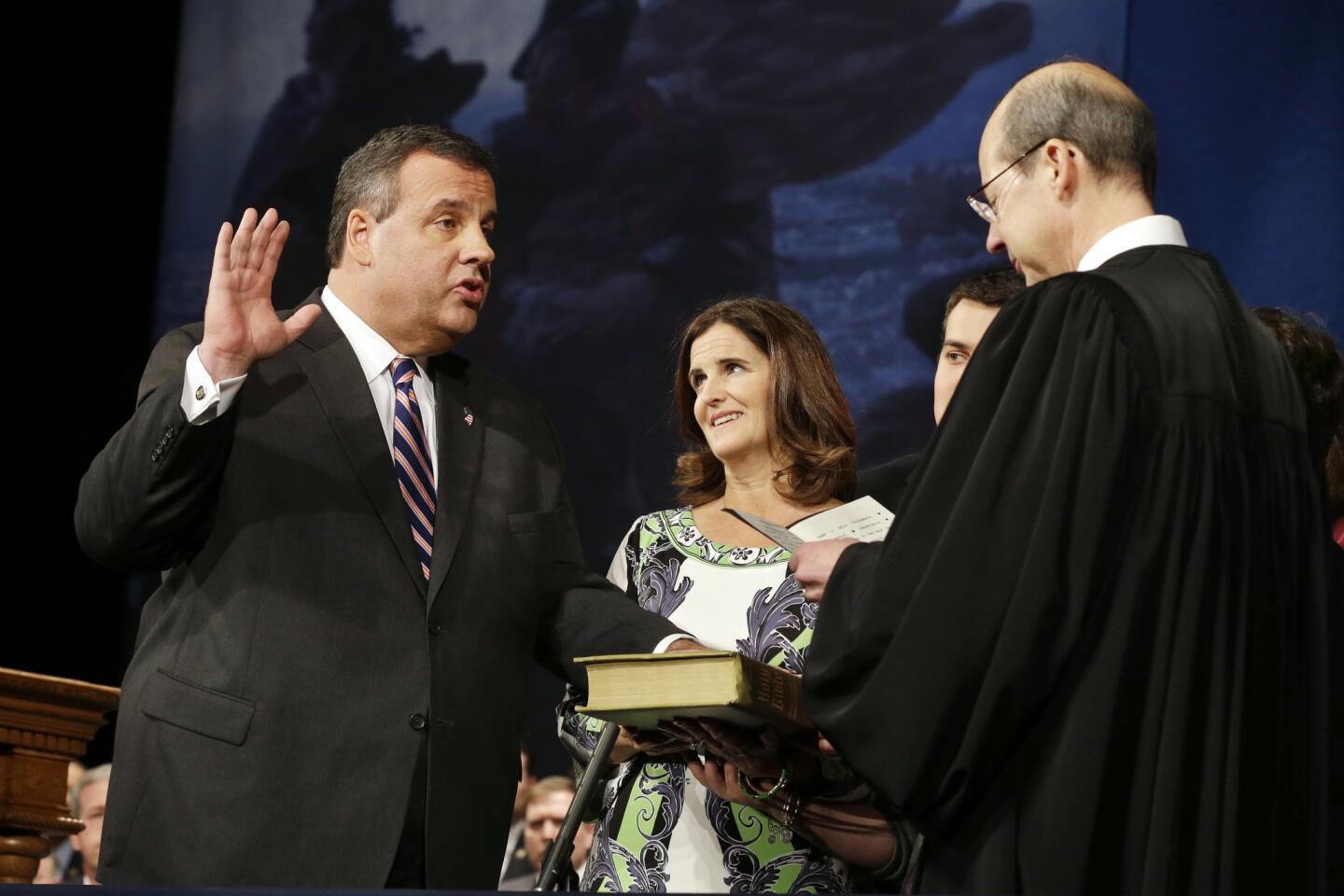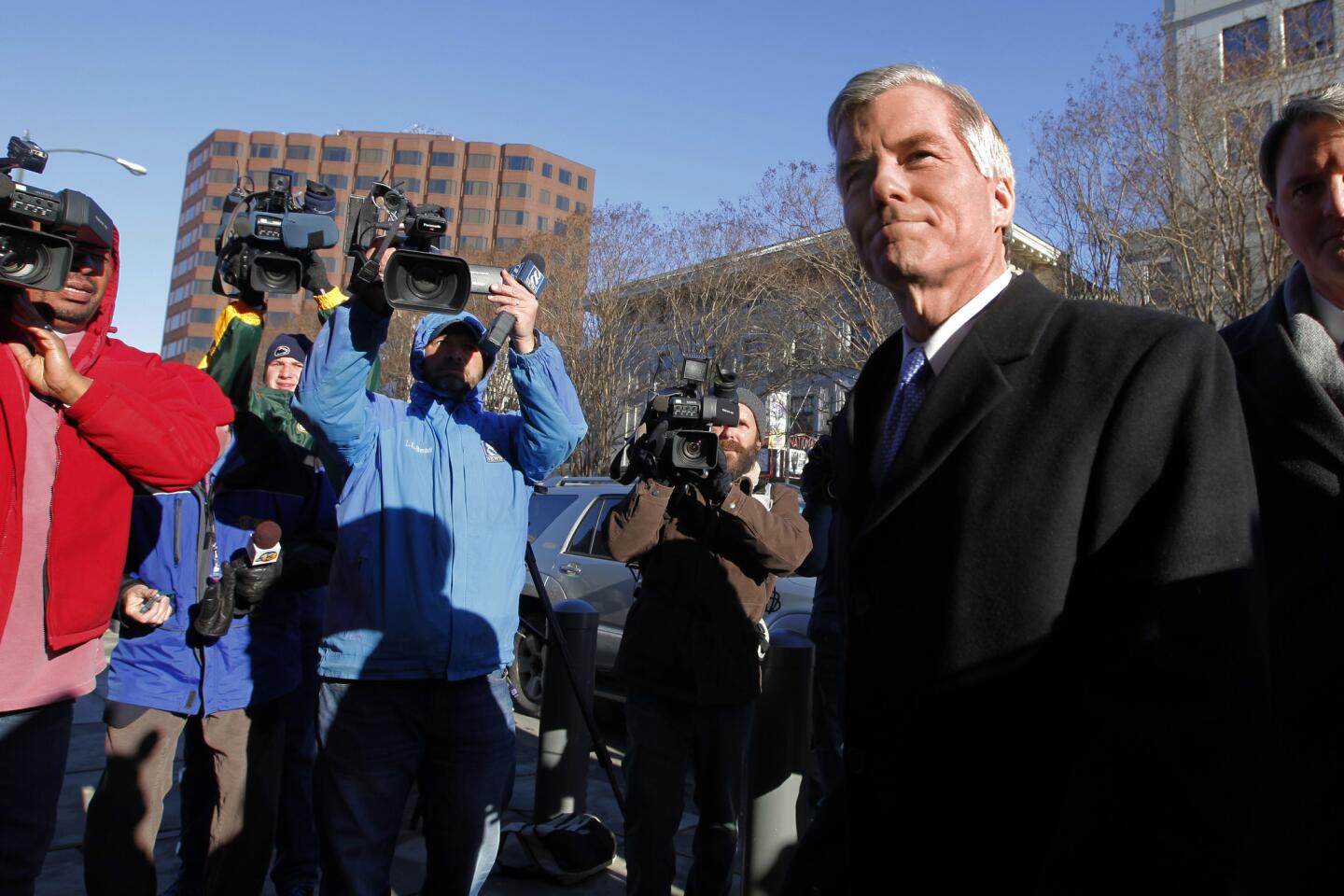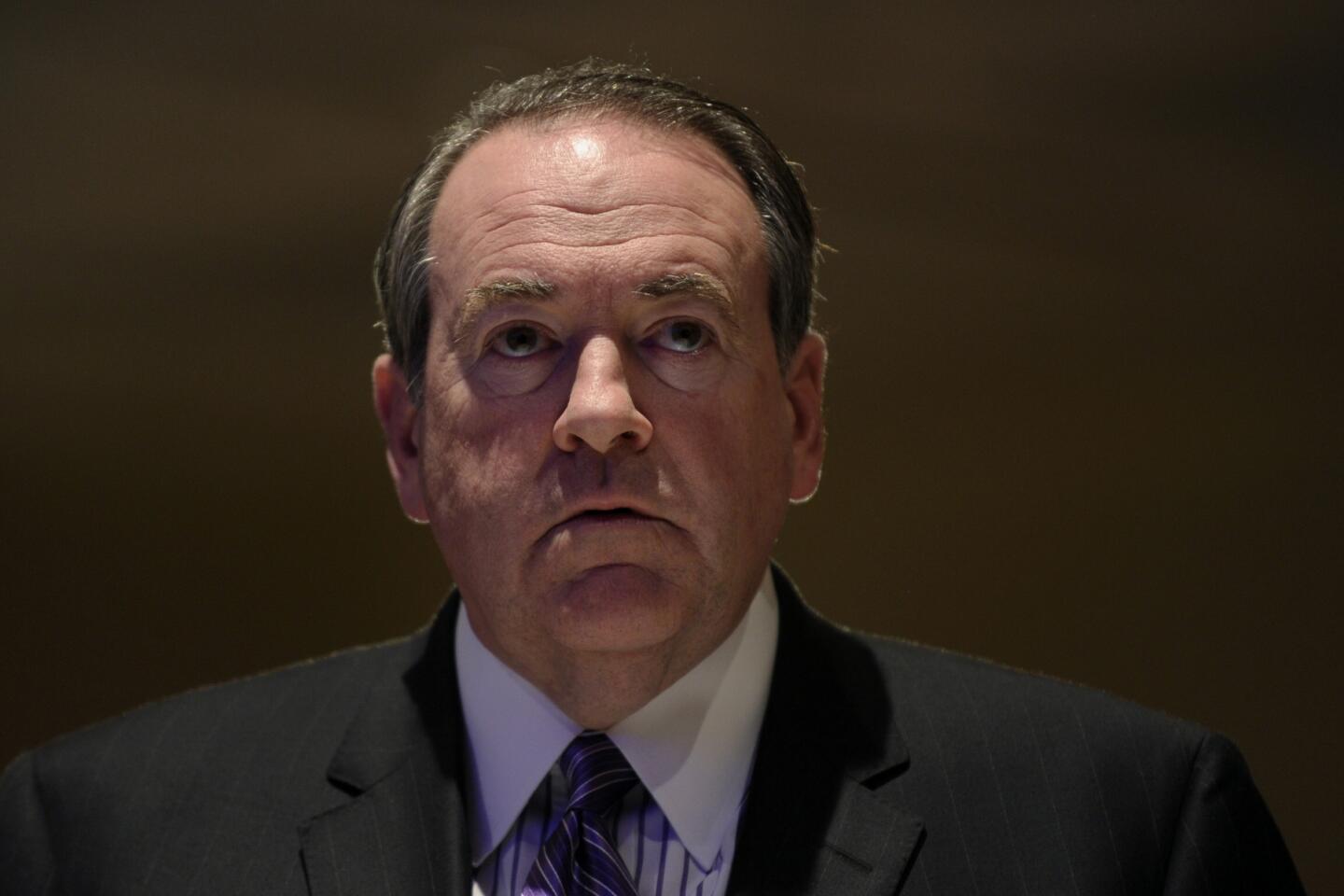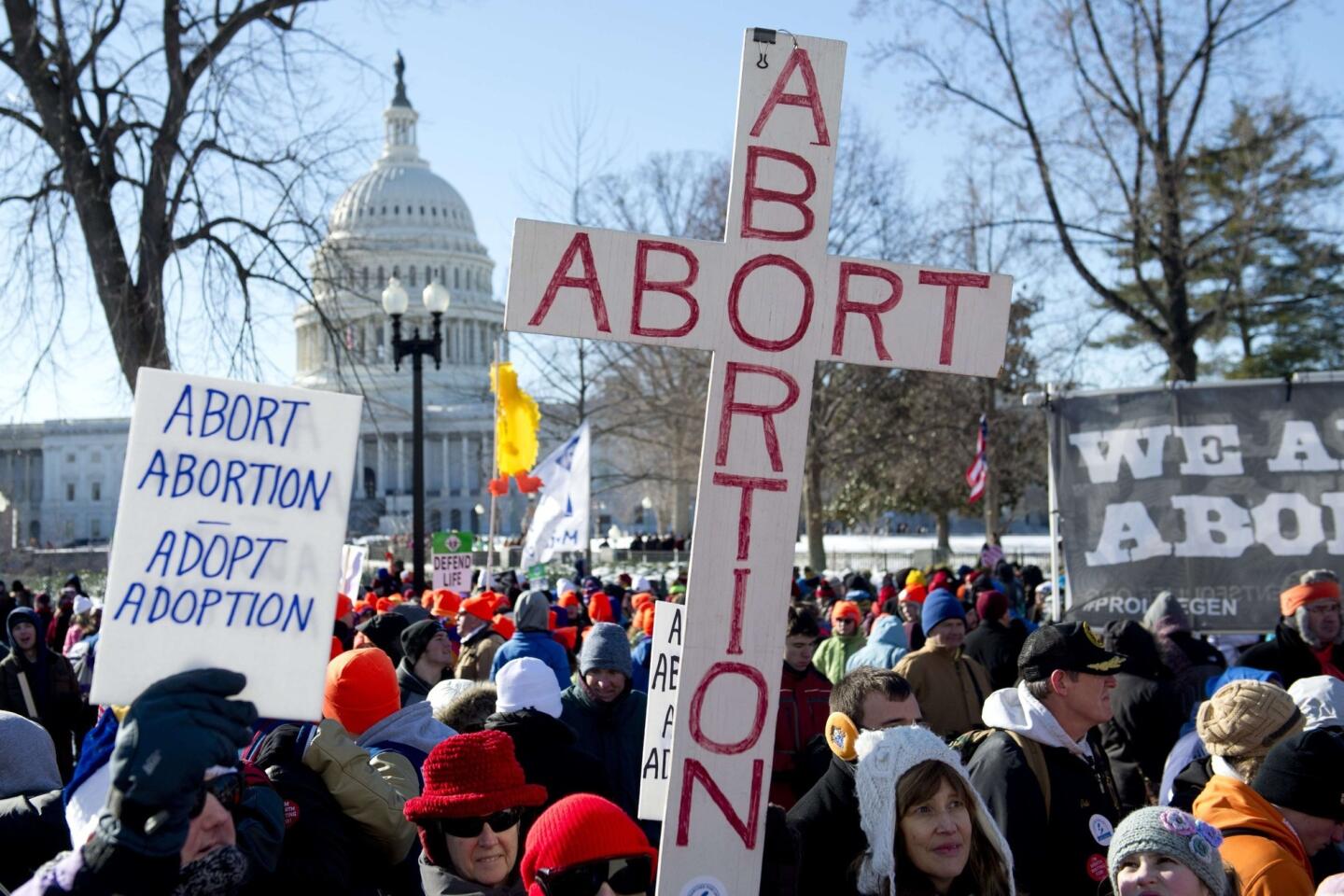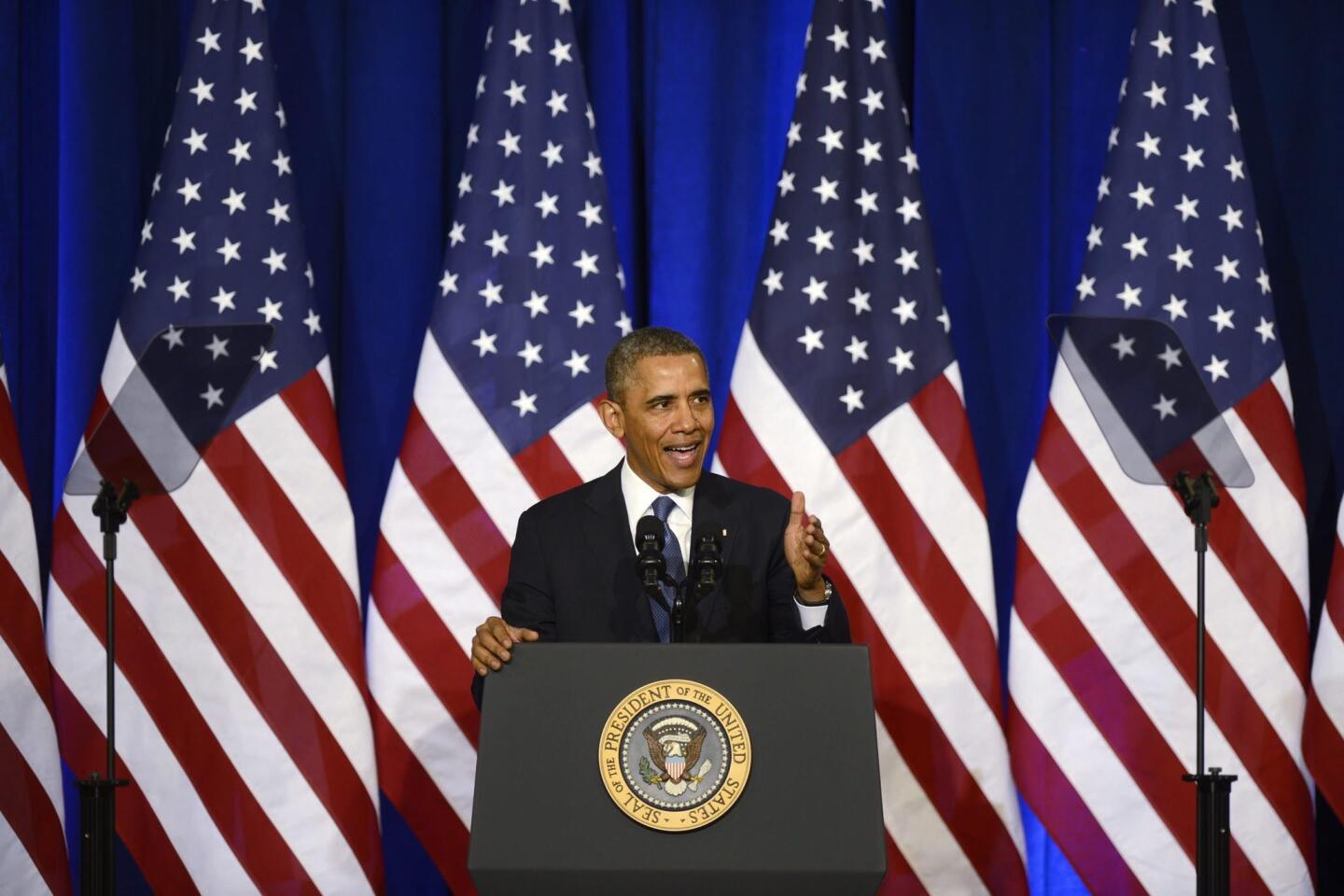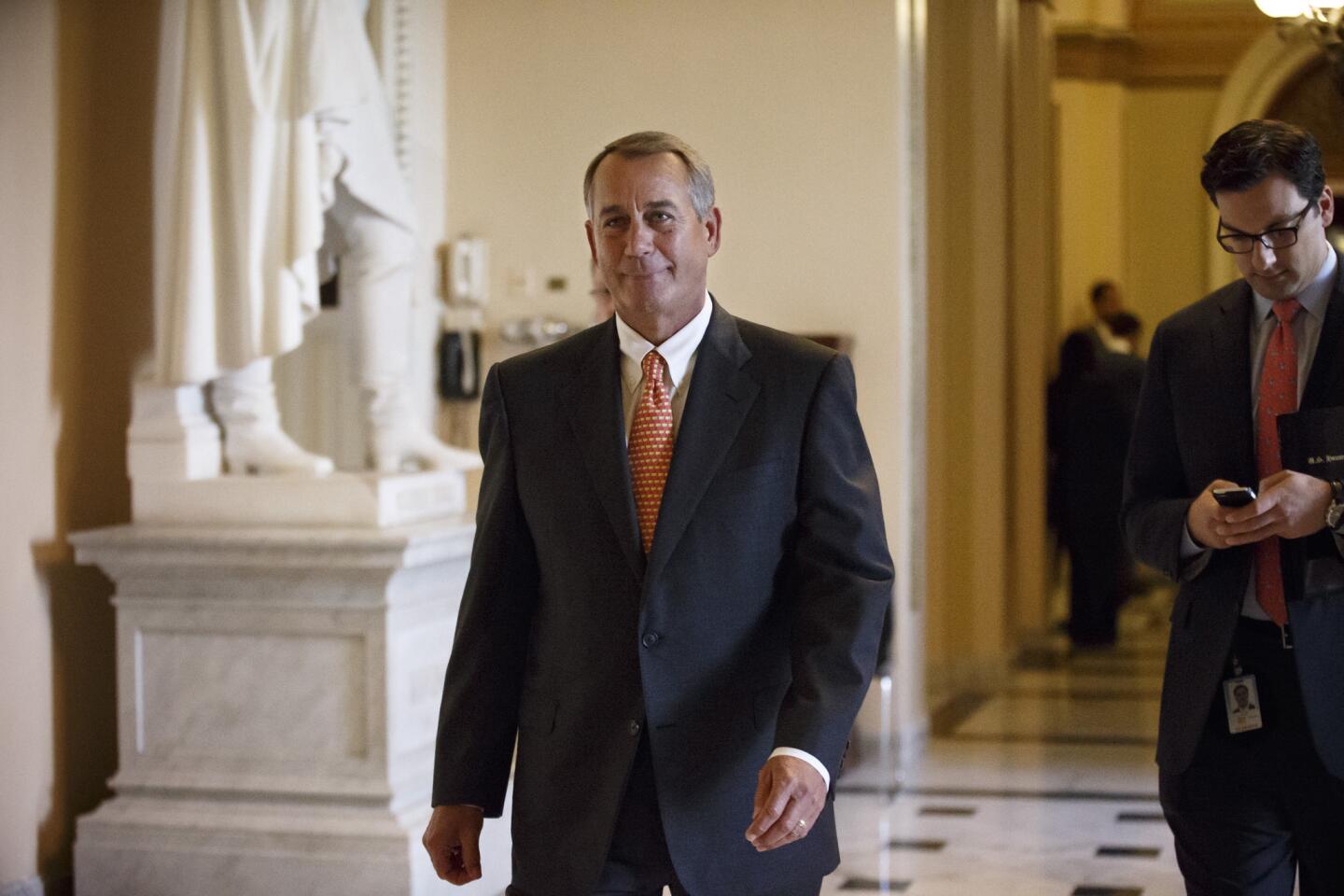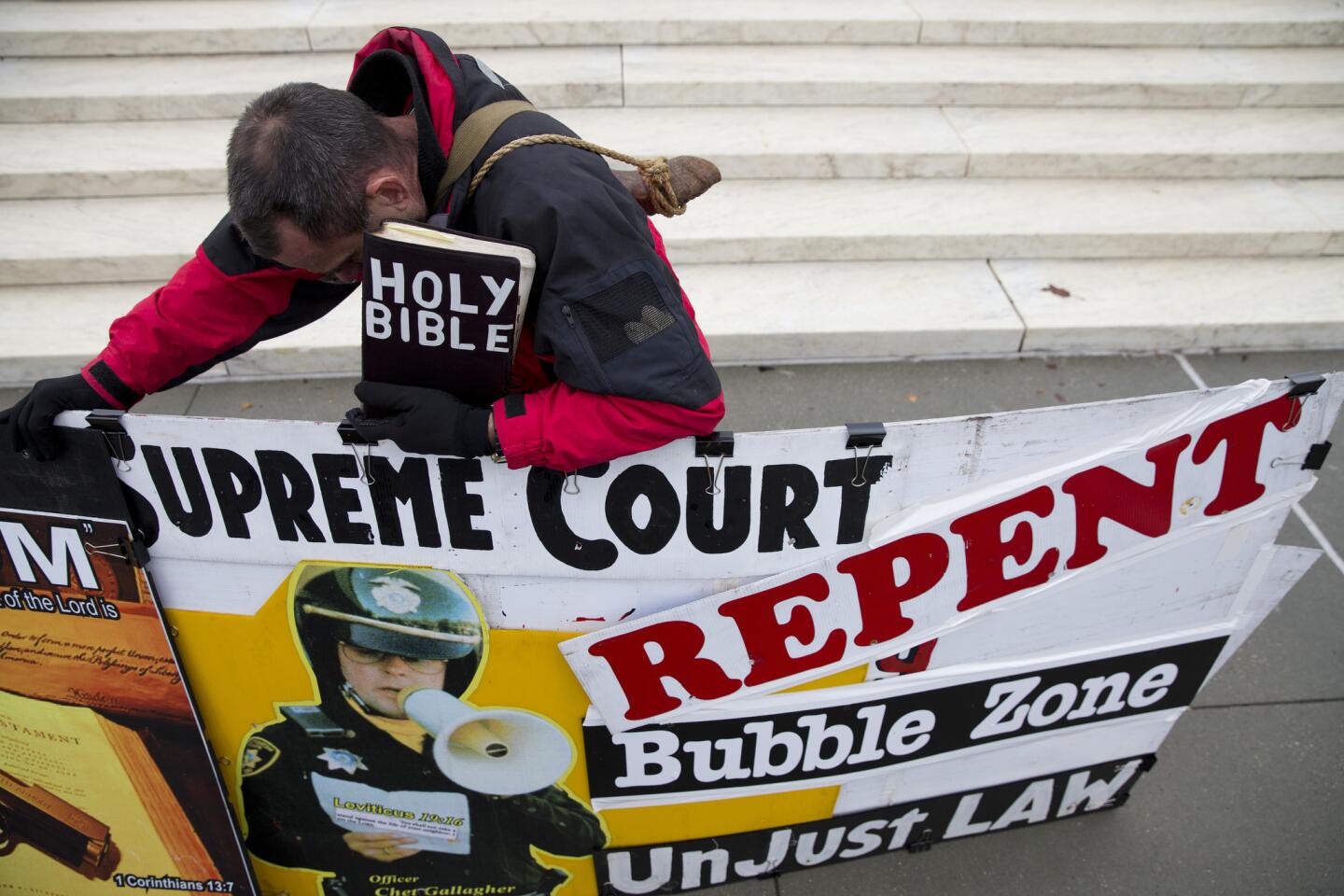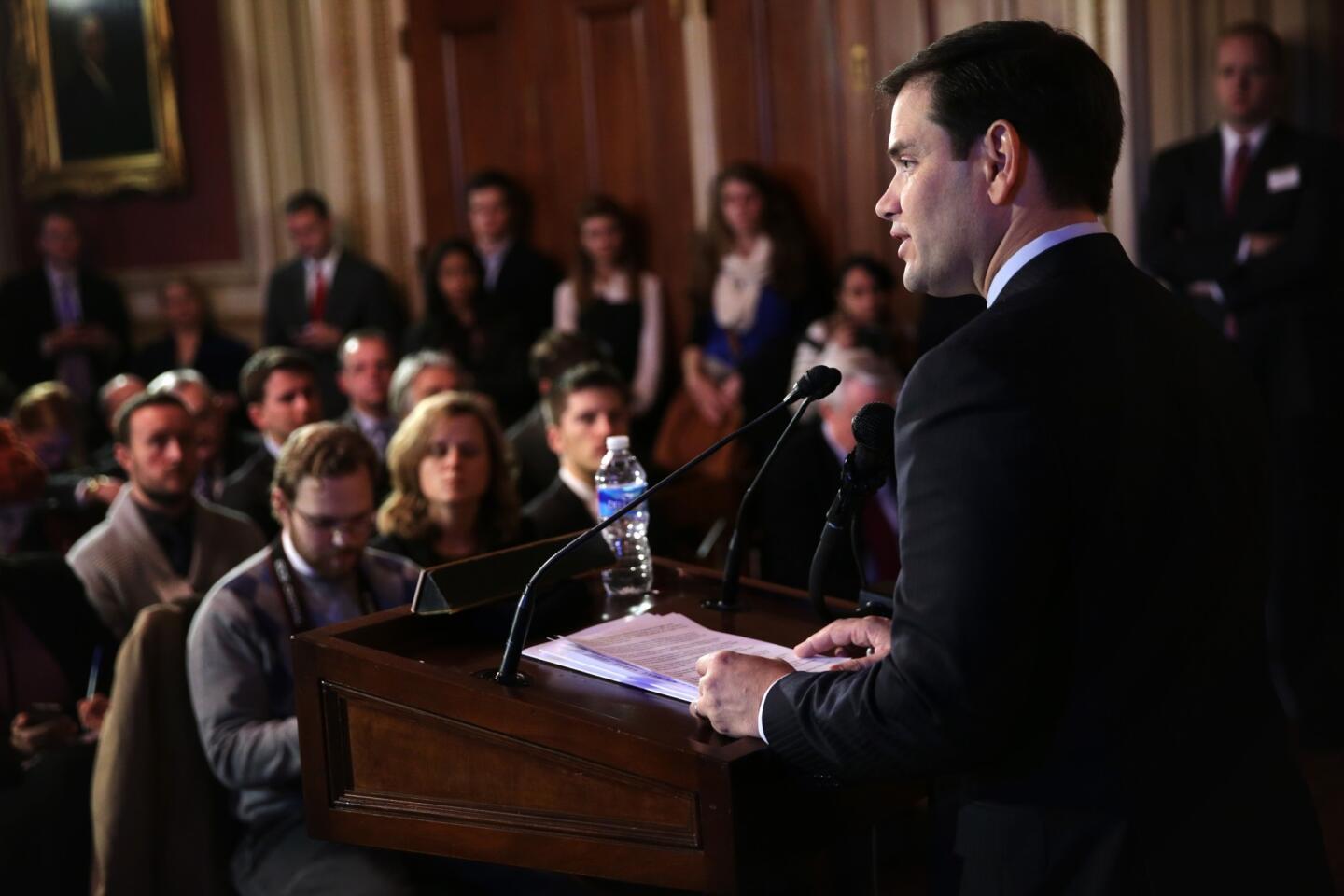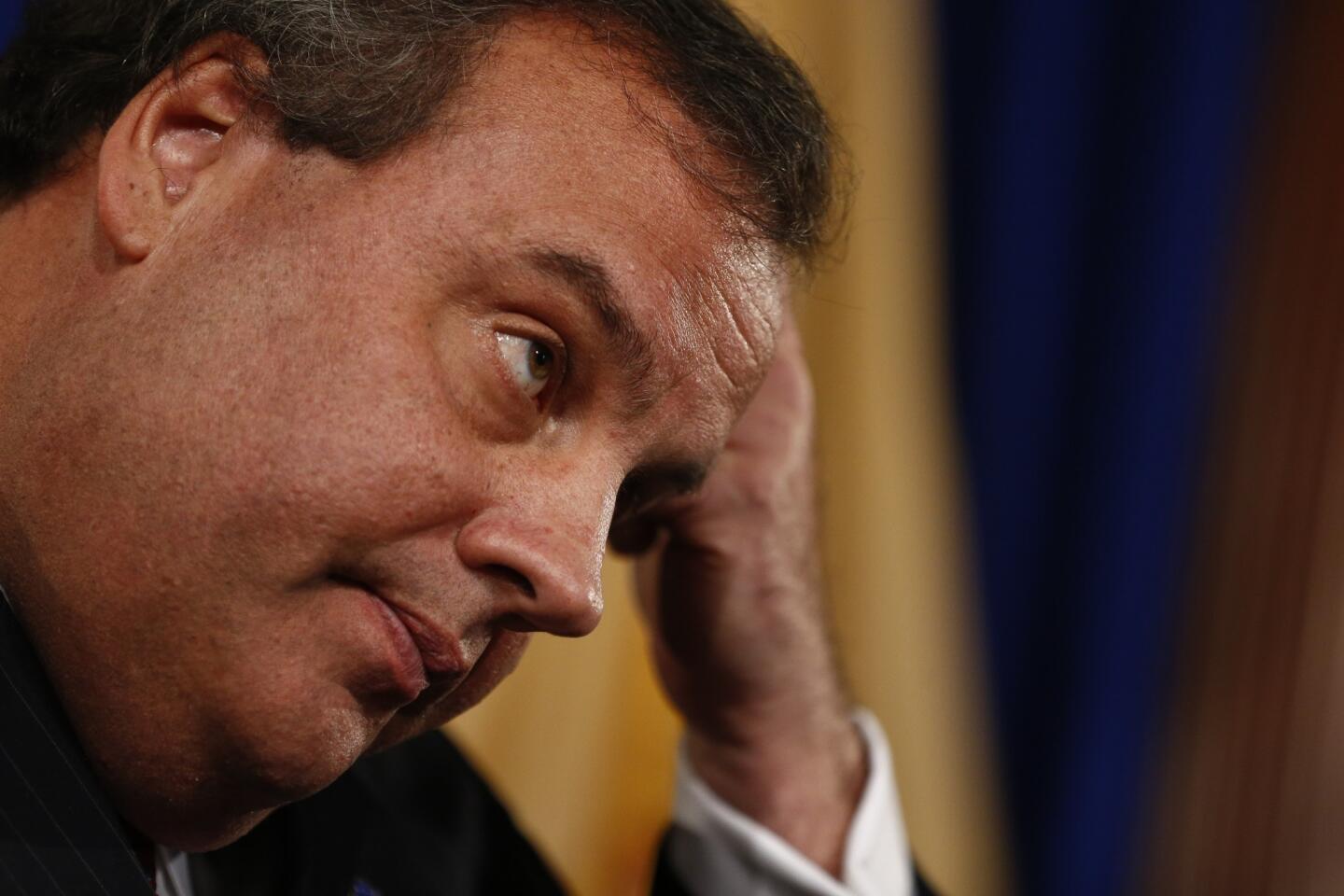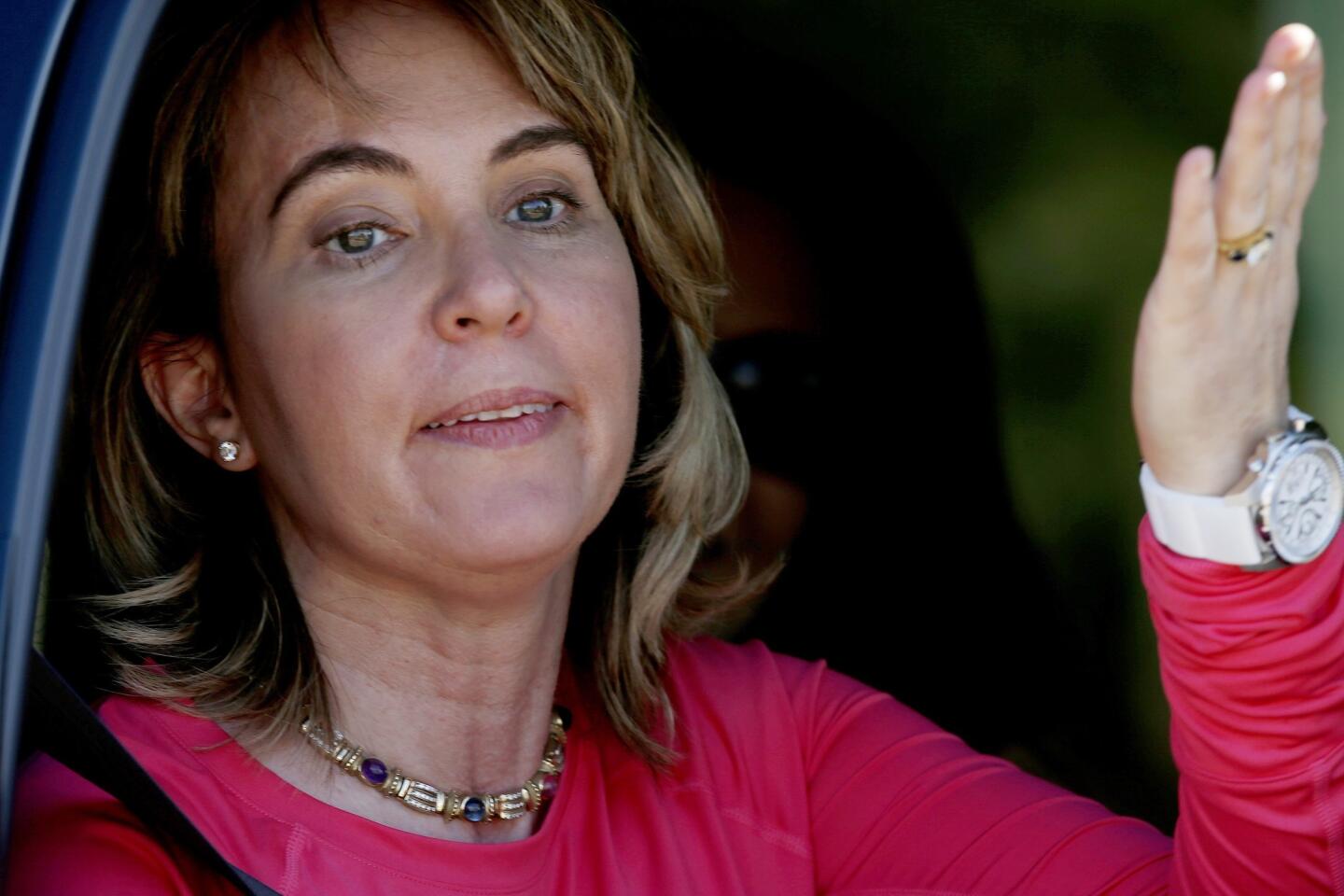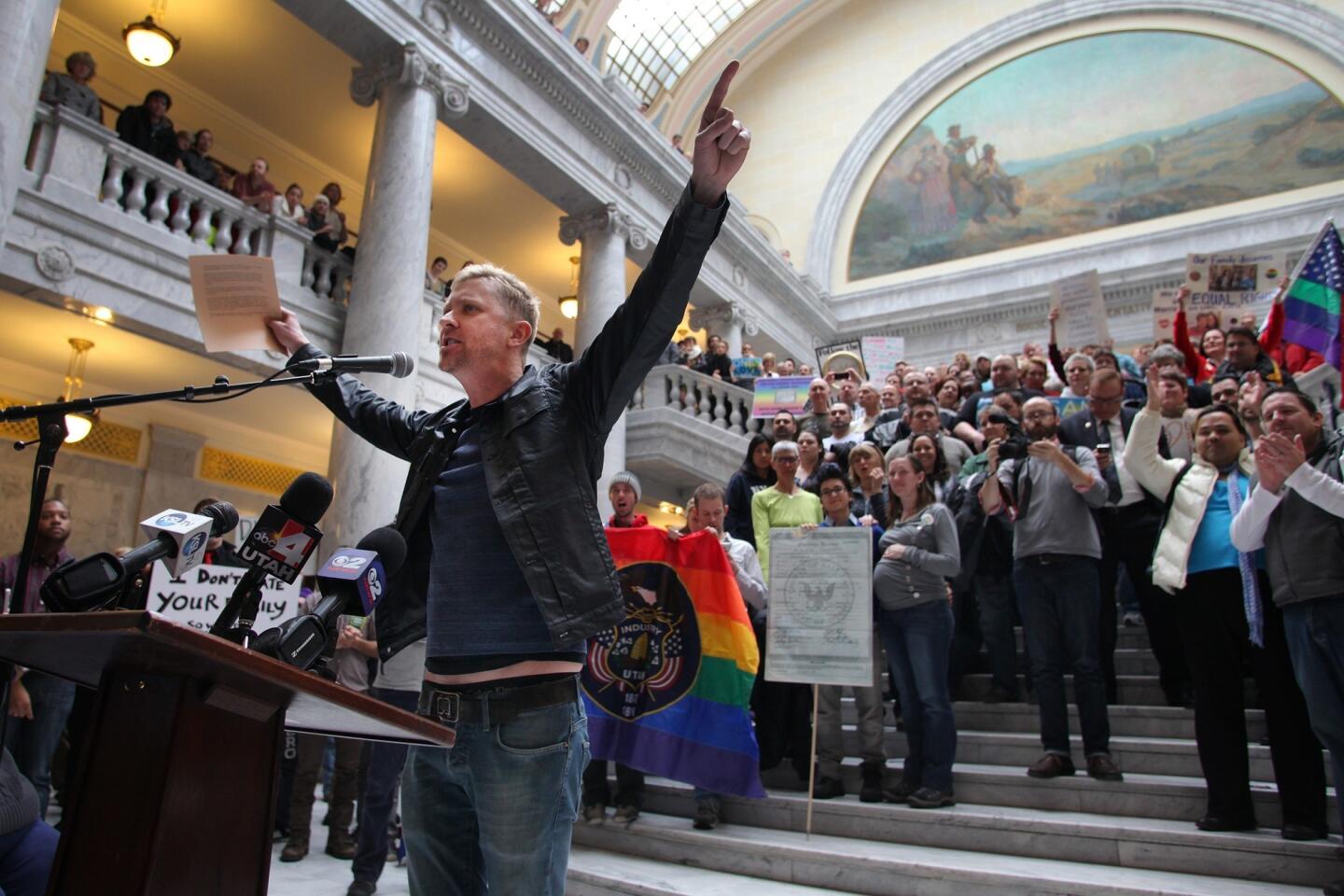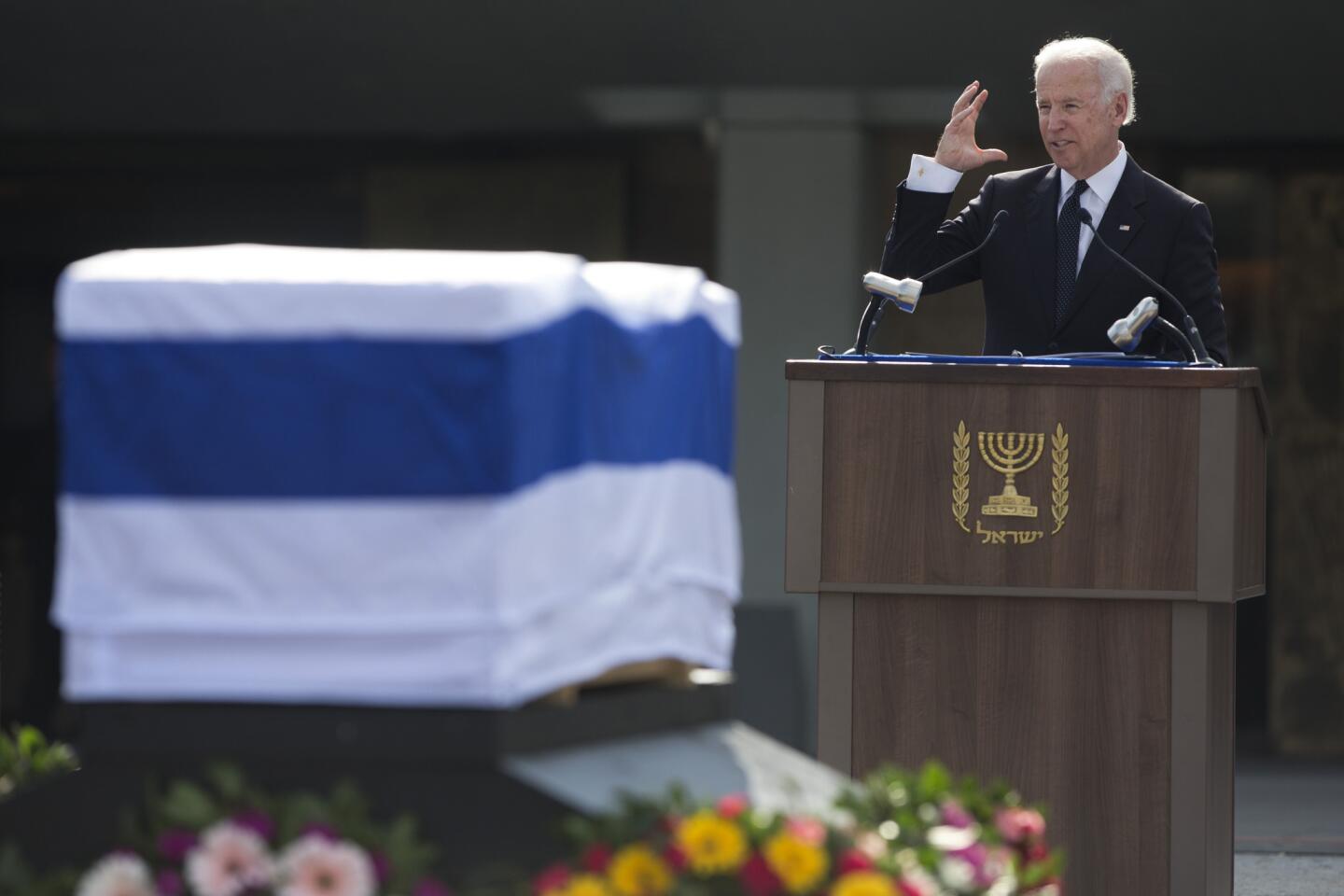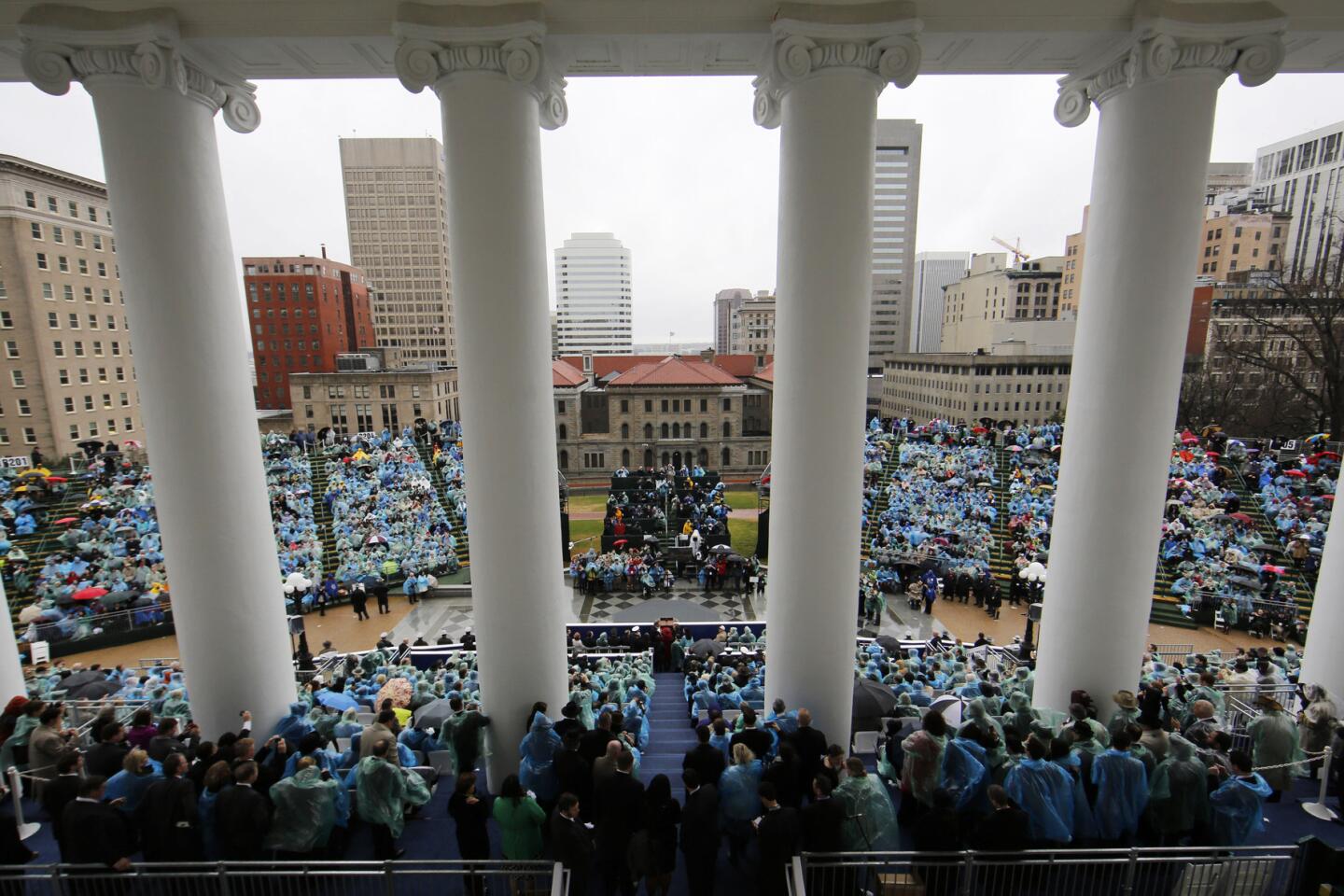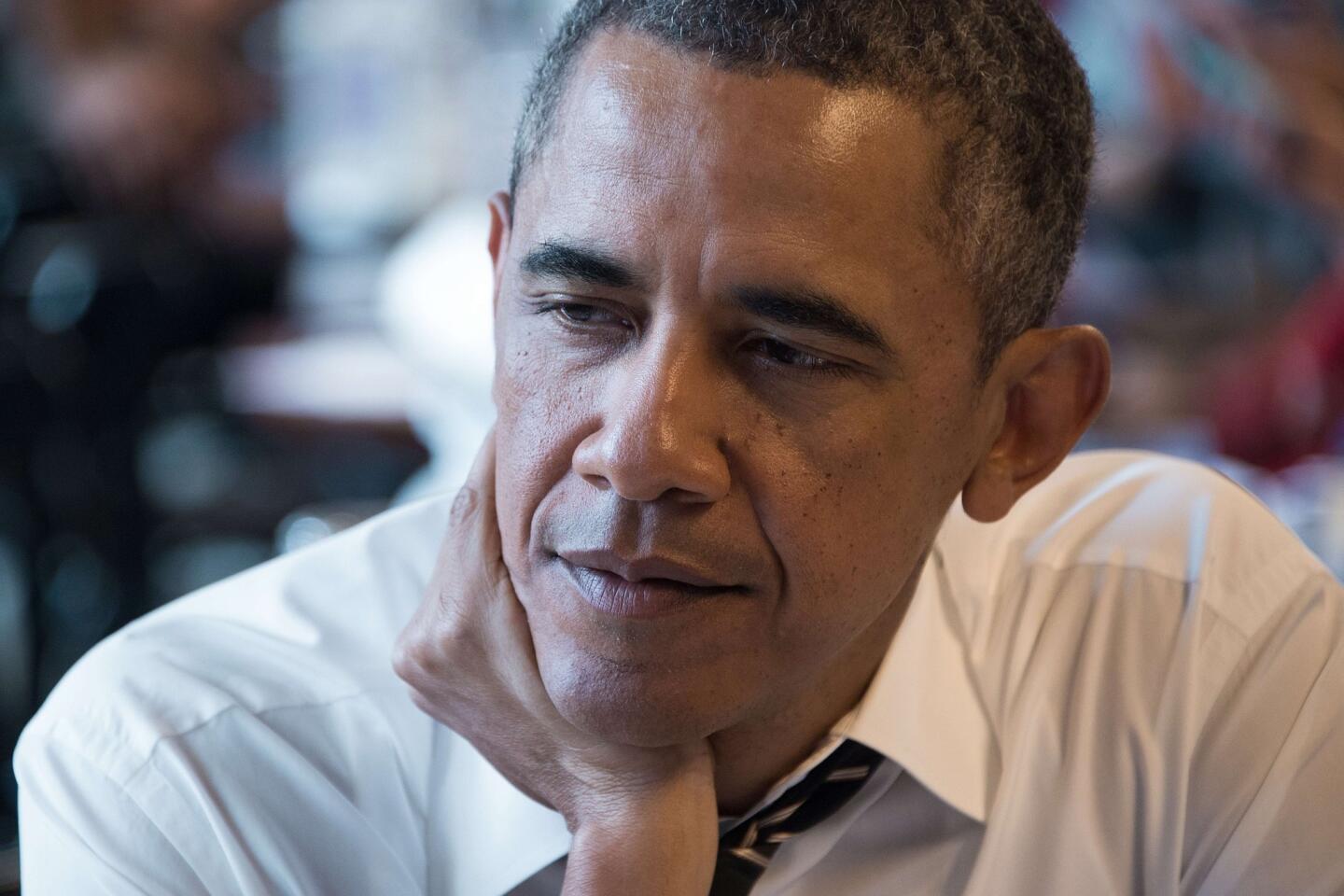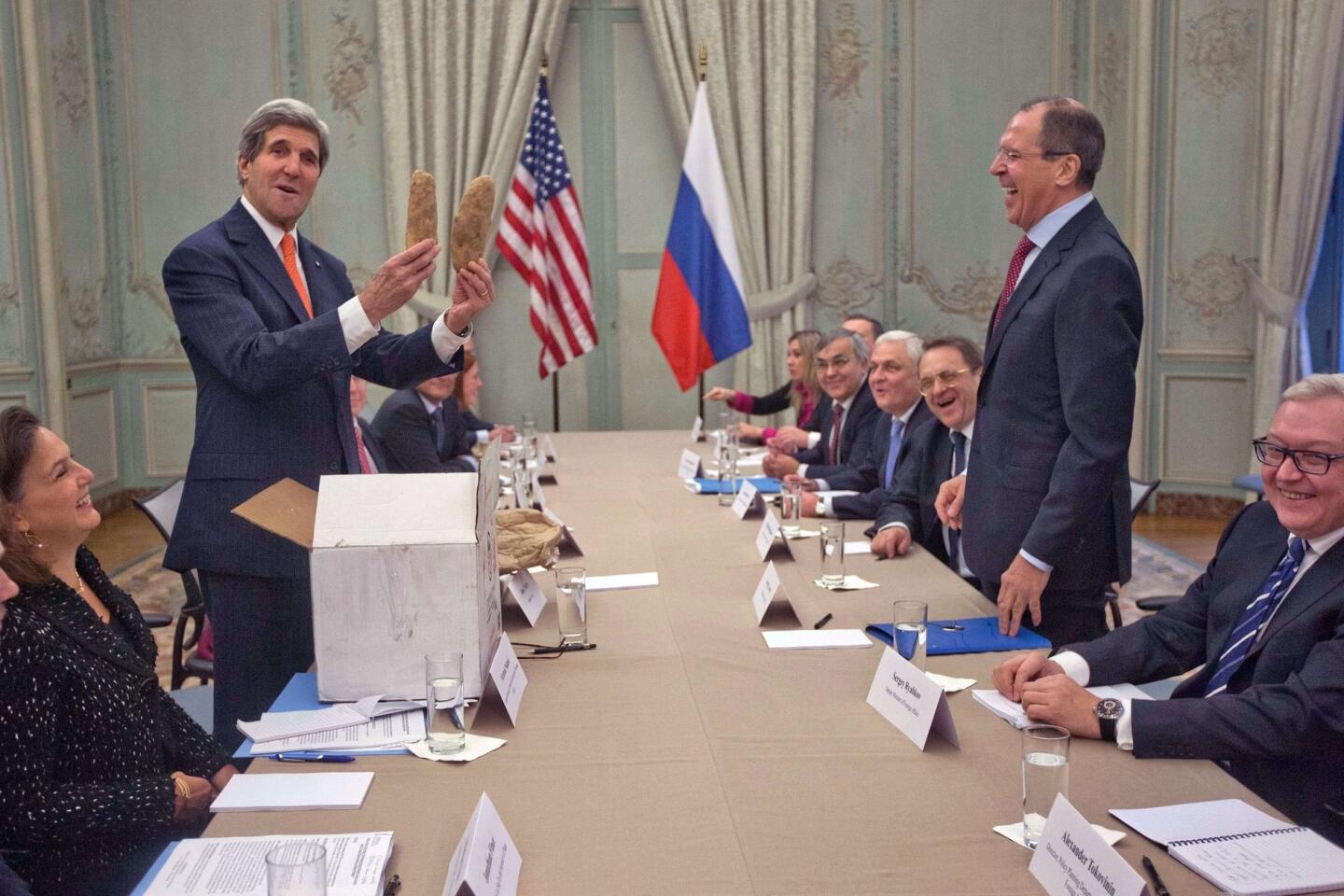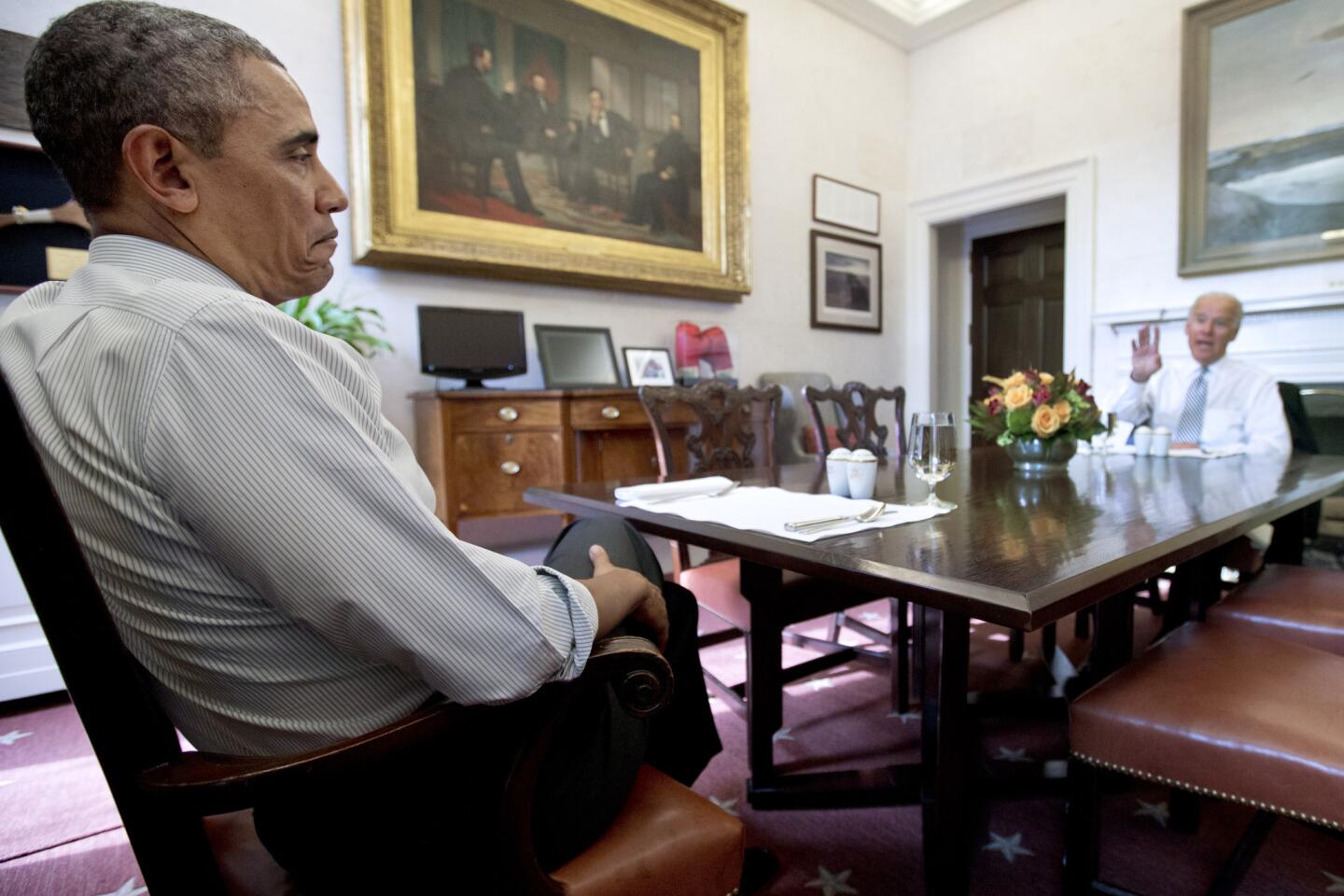Preview of 2014: Fiscal restraint and poverty as political imagery
The call-and-response to California Gov. Jerry Brown’s State of the State address Wednesday flipped traditional party roles on their heads. Look for more of it in 2014.
The Democratic governor spoke of fiscal discipline and, with a flourish, displayed a playing card featuring his telegenic, social-media-savvy dog, Sutter, and a slogan: “Bark if you don’t like deficits.”
His newest Republican challenger brushed Brown’s speech aside in a statement that accused the governor of having “forgotten the millions of California families who … live in poverty.”
“How many times did the governor mention poverty in his 17-minute address? Not once. That is outrageous,” said the statement by Neel Kashkari, the former Goldman Sachs banker and Treasury Department official who jumped into the race Tuesday.
The switched roles put a spotlight on the strategic thrusts and image weaknesses that both sides will seek to exploit in this year’s midterms, in California and elsewhere.
Since Proposition 13 blew up his first term as governor more than 30 years ago, Brown has reveled in his reputation for frugality, as much personal aesthetic as political image, and one that has run counter to his party’s old wild-spending reputation. The governor’s chances of repeating his slam-dunk 2010 victory this year have been strengthened by his success in putting the state on firmer, if not perfect, financial footing.
His imperative: to press the case that Democrats like him can be careful stewards of an economic revival without giving away the store. (In cautionary fashion, he emphasized the threat posed by looming retirement liabilities that in most cases were backed by Democrats, even as he skipped past the multibillion-dollar high-speed rail project he supports.)
Kashkari’s remarks, meantime, served to press his imperative: to break from the image of Republicans as friends of the rich and foes of the poor. His rhetoric planted his campaign firmly in the midst of a growing effort by some in the GOP to soften the vision of hard-heartedness that has flowed from their party’s recent policy moves.
Brown’s frugal image predated--and to some extent pointed the way toward--the policies that defined Bill Clinton’s presidency, when the nation’s deficits were trimmed as the Democratic president pulled his party rightward and ambled down the middle of the political road. Kashkari’s view dates largely to Jack Kemp’s assertive though largely unsuccessful effort in the 1980s to make Republicans the party of upward mobility for the urban poor.
As a congressman from Buffalo, N.Y., the secretary of Housing and Urban Development in the George H.W. Bush administration and as the GOP vice presidential nominee in 1996, Kemp reveled in visits to crumbling inner cities, a rare Republican utterly at ease in that environment. (He was raised in Los Angeles and spent 12 years as a professional football player, which he credited with expanding his comfort zone.)
PHOTOS: 2016 presidential possibilities
“You know in your life that if you work hard and you’re a good citizen and you drive down the right side of the street and you stop at the signals and you study hard and you mind your mom and dad and you get good grades, stay in school and keep that first job, that you’re not going to be in poverty. I mean, you just know it intuitively,” he once said in an interview.
“What if this is not true for [some] people? What if there is no job at the end of the tunnel? What if education doesn’t lead to anything but unemployment lines? . . . I think government has a responsibility to create [that] climate.”
Kemp’s efforts didn’t move the party much. Still, although Republicans as a whole are more anti-government now than they were in his era, a revival of sorts is ongoing now, more than four years after his death. Rep. Paul D. Ryan (R-Wis.), the 2012 GOP vice presidential nominee and a former Kemp staffer, has been among those trying to emphasize new approaches to battling poverty.
Others, including possible 2016 Republican presidential candidates Rand Paul, the senator from Kentucky, and Marco Rubio, the senator from Florida, also have emphasized new poverty policies. But that has collided with other party elements that want government’s role scaled back, particularly when it comes to food stamps, extended unemployment insurance and the minimum wage.
The dual desires gained negative notice earlier this month when Rubio delivered a speech on easing poverty—in part by pushing the matter to the states—a day after voting against extending unemployment insurance to 1.3 million Americans whose benefits ran out late last year.
For his part, Kashkari was right that Brown barely mentioned the poor, other than to genuflect toward the “too many struggling families” that he said populated the state. But that is the flip side of image: Democrats are presumed to care for the poor, and have less demand to prove it.
Since it plays against their image, Republicans have to work harder to demonstrate that the affinity is more than just image enhancement. And it’s that problem of authenticity that Kashkari has made little headway on in recent days.
As during Tuesday’s announcement of his candidacy, he offered no explanation Wednesday of exactly how he would come to the aid of the stricken, other than to simply say that “the status quo is unacceptable.”
He will have to come up with something more substantive—or look for some playing cards featuring his dogs.
Twitter: @cathleendecker
More to Read
Sign up for Essential California
The most important California stories and recommendations in your inbox every morning.
You may occasionally receive promotional content from the Los Angeles Times.
